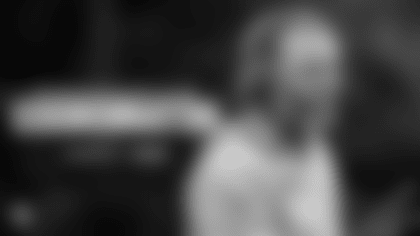Sonny Jurgensen became an icon for the Washington fan base as a Hall of Fame quarterback. When he retired and turned to broadcasting, he was just as impactful because of his insight and knowledge that he provided to fan. He became one of the key voices that guided Washington through their three Super Bowls, and Frank Herzog was right there beside him.
Herzog was in awe of Jurgensen from the moment he began working with the former quarterback. He admired how natural Jurgensen was at the job, and he cherished the memories that they created both in and out of the booth.
Here is a conversation with the legendary broadcaster about his time working with the Hall of Famer.
When did you get to know Sonny?
I got to know him at Channel Nine. He was a great storyteller, and he was smart, and he loved football. He could pick the game apart. And I was just fascinated. I was like a sponge. I wanted to be around him all the time just to pick up the kernels of things that he just tossed out.
A lot of athletes want to get into broadcasting after they retire, but not all of them are great at it. Some are good, and some aren't. Why was Sonny so good at it?
Because he was coachable. I'll tell you a story. He was hired at Channel Nine and his voice, he has a higher pitched voice, and it could have been distracting at the time. And our old boss, Jim Snyder, who built the Channel Nine dynasty, sent Sonny to New York for voice lessons. He was coached up there. He went up several times and he was coached in reading scripts, using his voice and changing the way he spoke. The classic story his wife tells is he called her and she said, he said, "Hello, Margot" in a deeper voice. And she said, "Who is this?" He said, "This is Sonny. I'm speaking from my diaphragm." And she said, "Gee, I didn't even know you wore one."
When he decided to do it, he took a serious. In fact, I think that's a trademark of Sonny Jurgensen. If he decides to do something, it is full steam ahead. He does it."
Did you see a lot of those other traits like that he put on put into being a broadcaster that he took from being a professional athlete?
Most competitive guy I ever met. On the golf course. Everywhere. He was competitive and he learned to translate that. The other thing I think he learned that was very valuable was he learned to translate his football knowledge and turn it around so the average Joe could understand it. Those guys, they speak in a different language. And most people don't understand it. He was able to break it down and make it understandable. He was able to talk about games in human terms. And I think that was a key to his success.
You, Sam Huff and Sonny were such an iconic trio. Obviously, Sonny and Sam had a lot of chemistry together because they were teammates, but how long did it take for you to fit into that?
I was very concerned about that. And the first game, I think it took all of 12 minutes. First of all, I'm a broadcaster. So, I'm used to working with other people. But when you sit down with two Hall of Famers your attitude is, "Hey, both screw this up. Let's do your part, and let's make it work." That was my goal. And they made it so easy. I worked with Sam for a year anyway, so I was used to Sam and got along well with him. And then Sonny came in, and he had all this experience, and he was easygoing. And he and Sam, they're brothers. They liked each other so much, and as a result, the chemistry was already there between them. And I just got to enjoy it. Imagine a better seat. You're sitting between two Hall of Fame football players watching a football game. You just can't beat that. So, what you try to do is get as much out of them as you can, and get their insights, and they didn't hold back.
The Washington Commanders will retire Hall of Fame quarterback Sonny Jurgensen's jersey in Week 18 against the Dallas Cowboys. Check out the photos of Jurgensen's career in Washington.
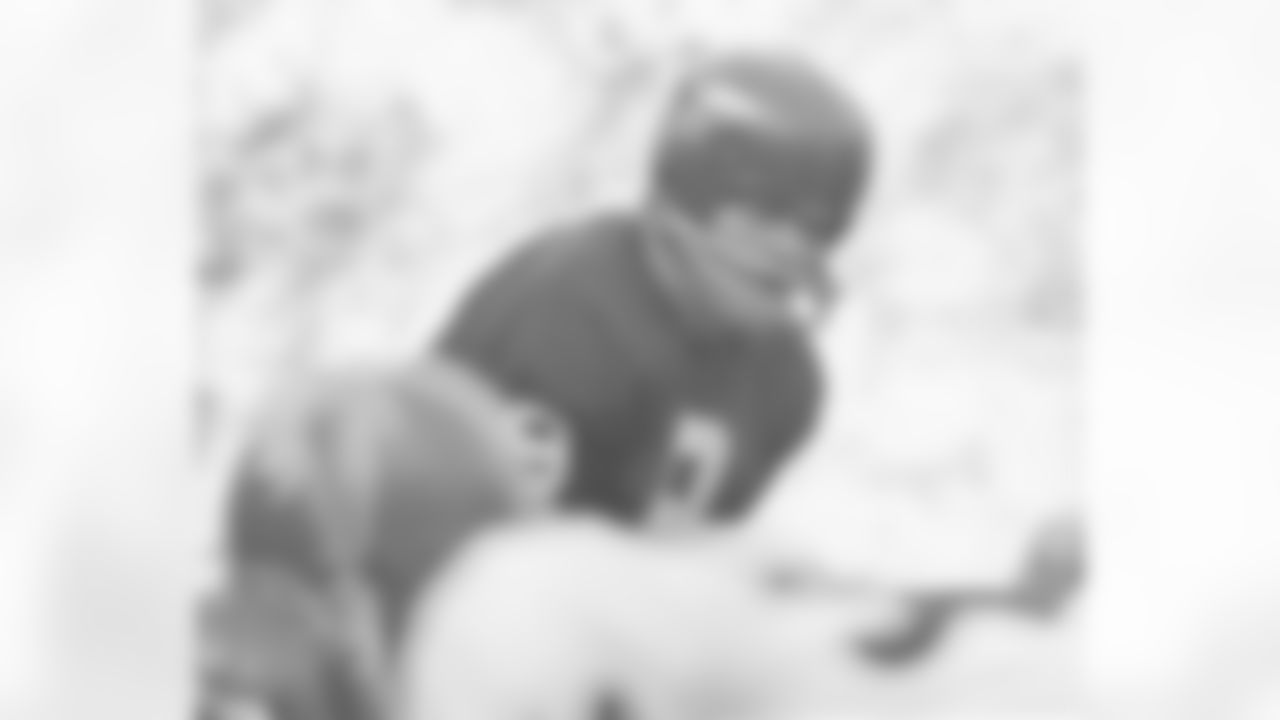
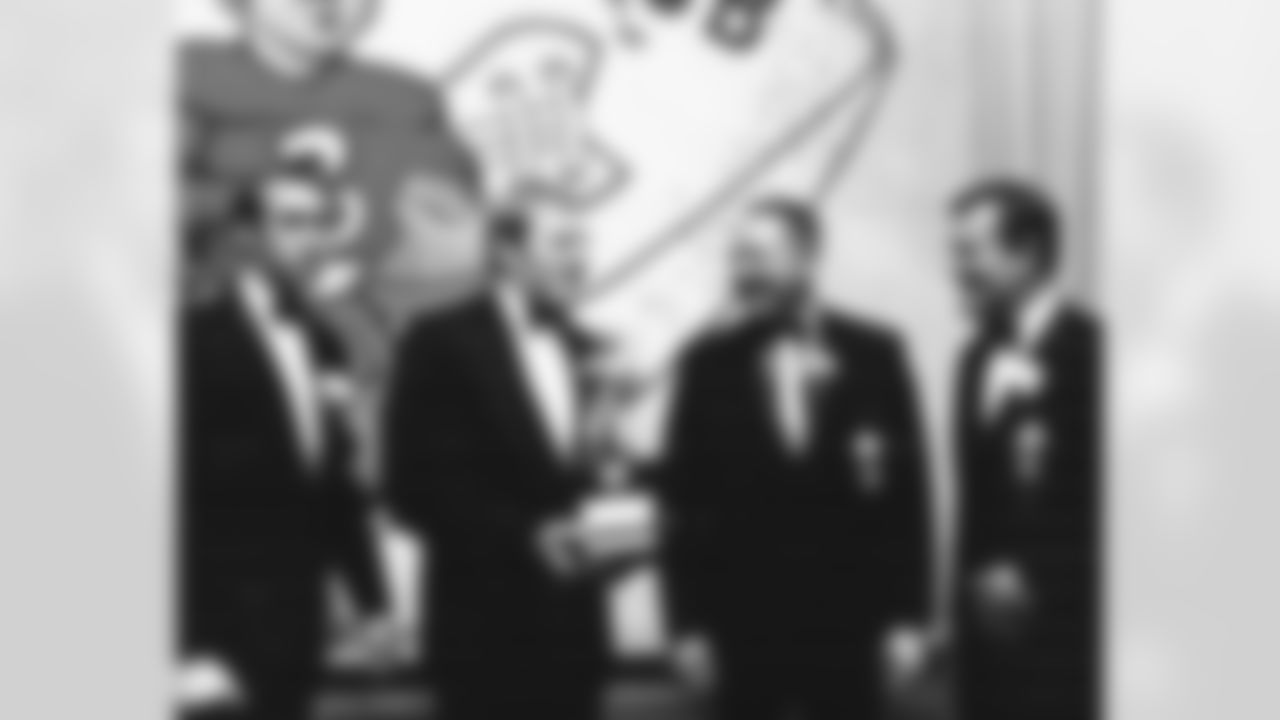

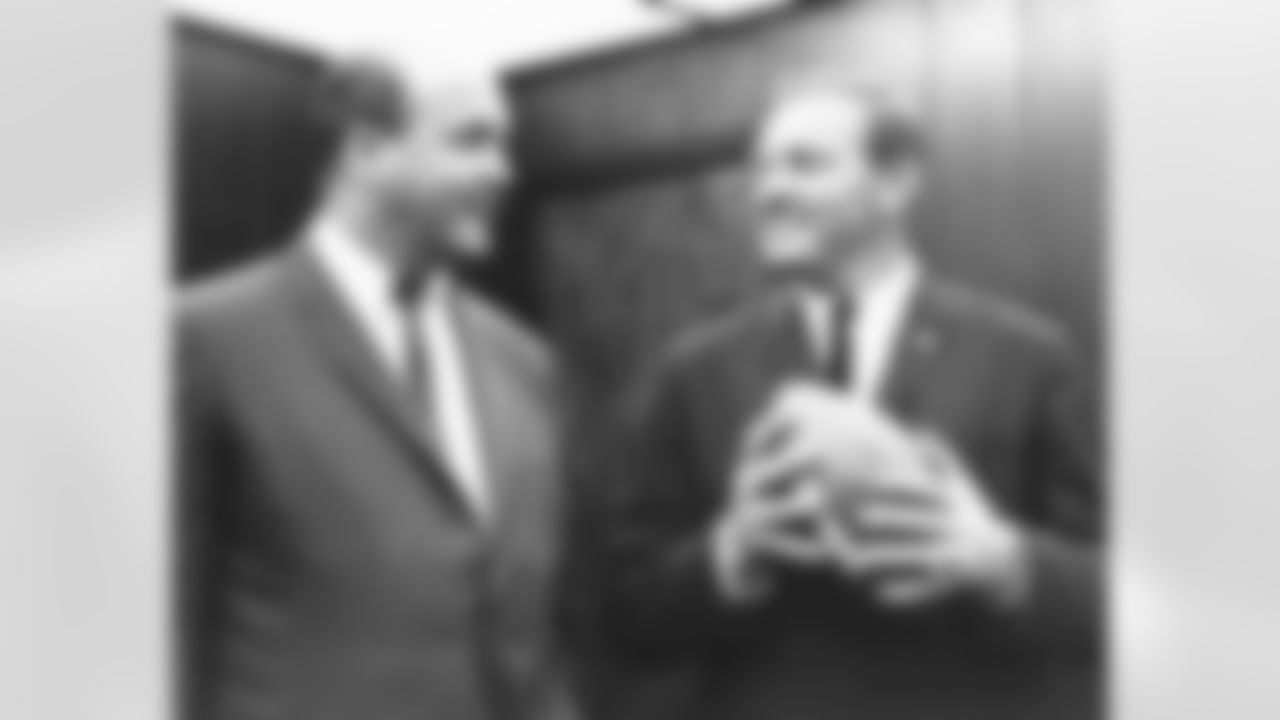
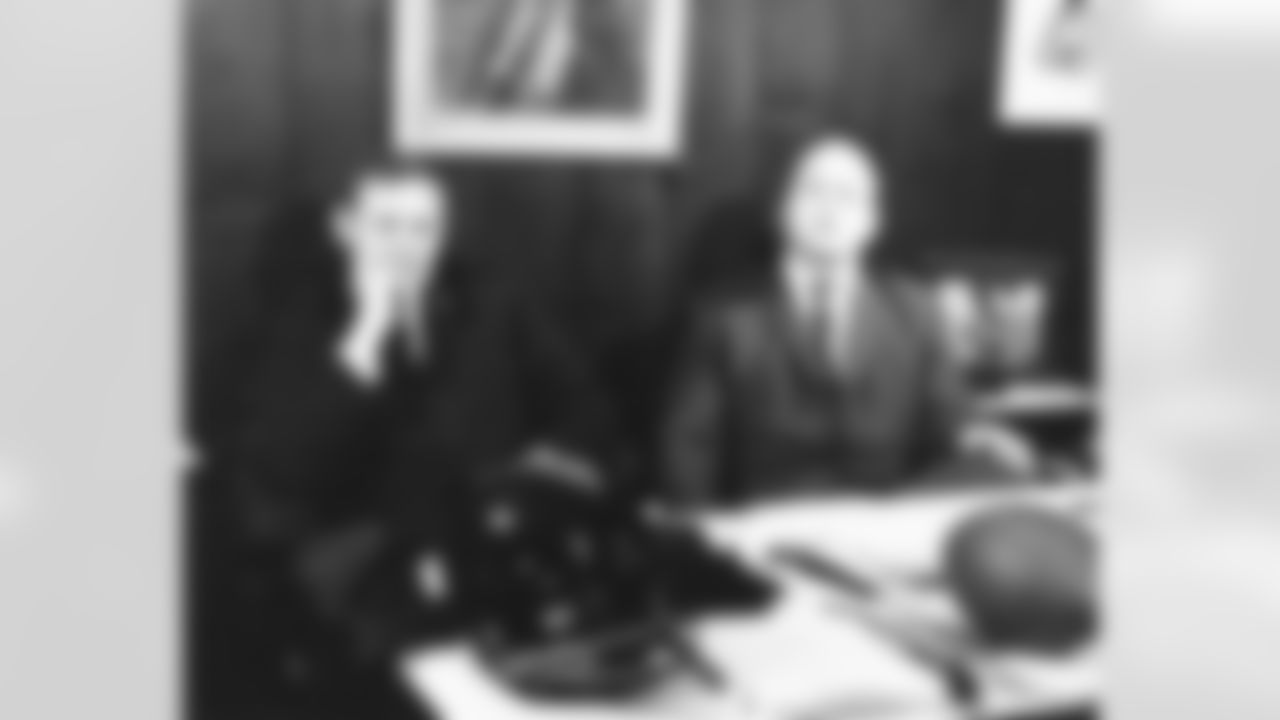
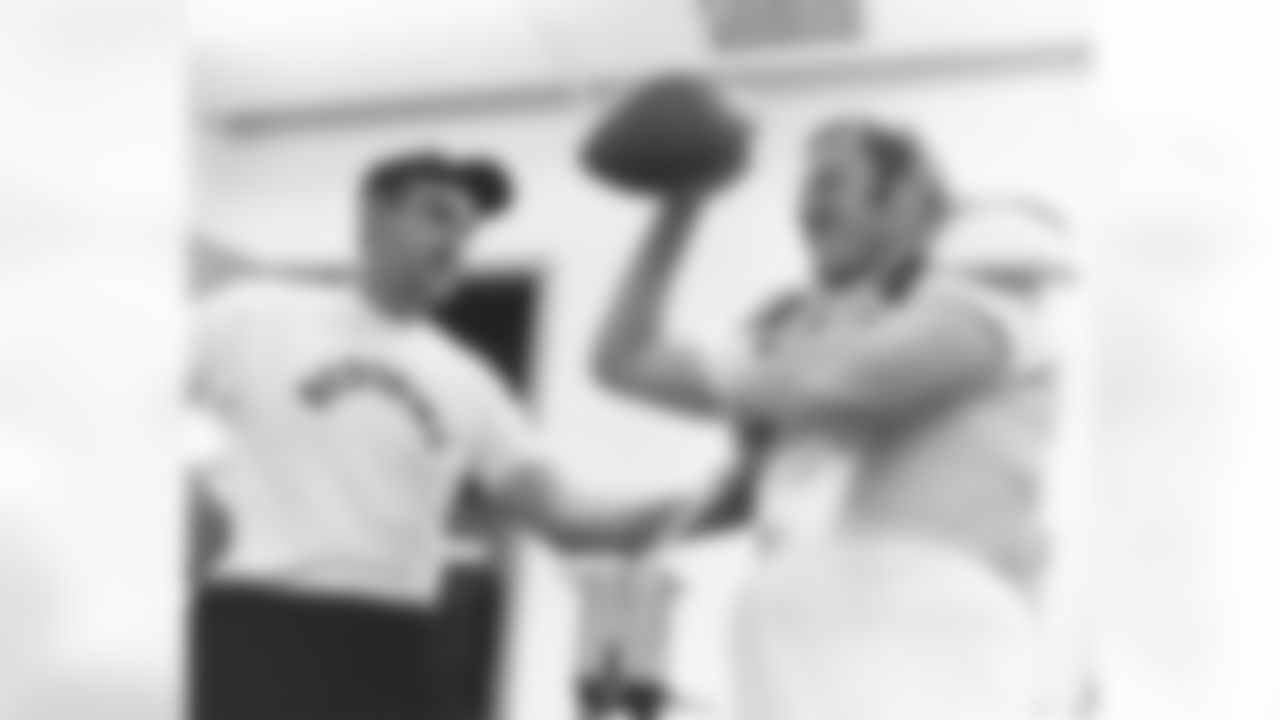
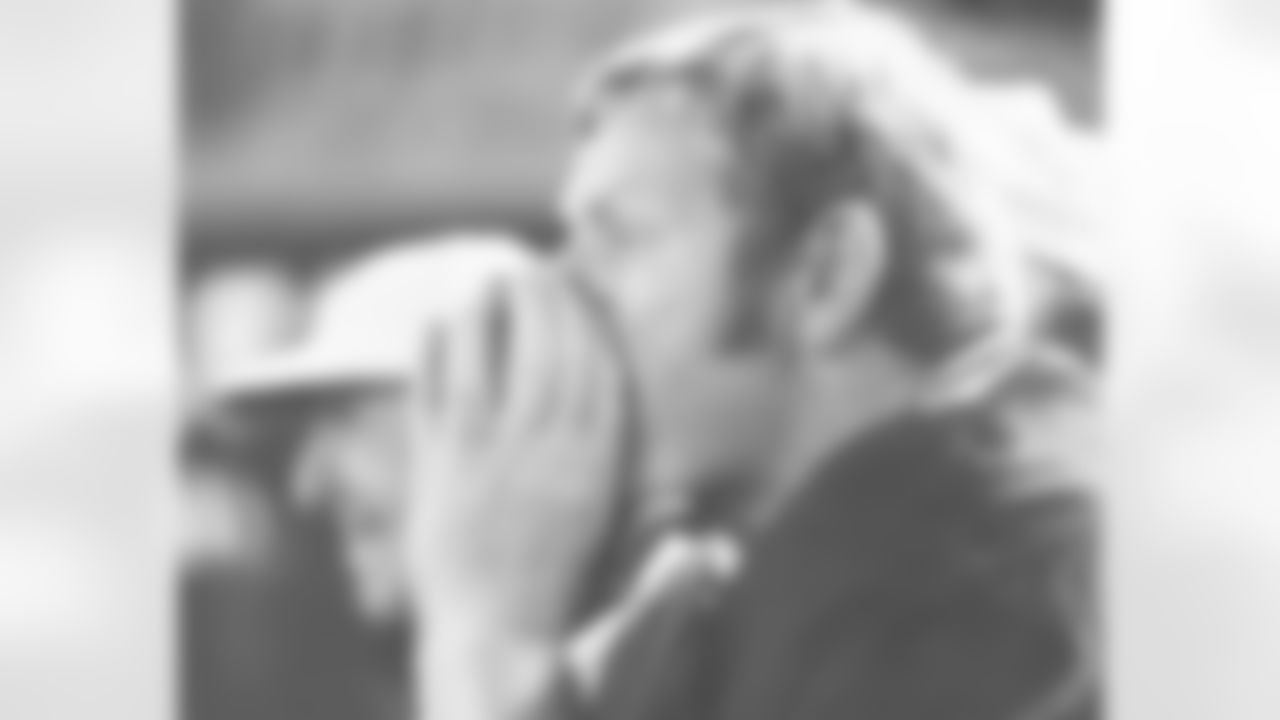
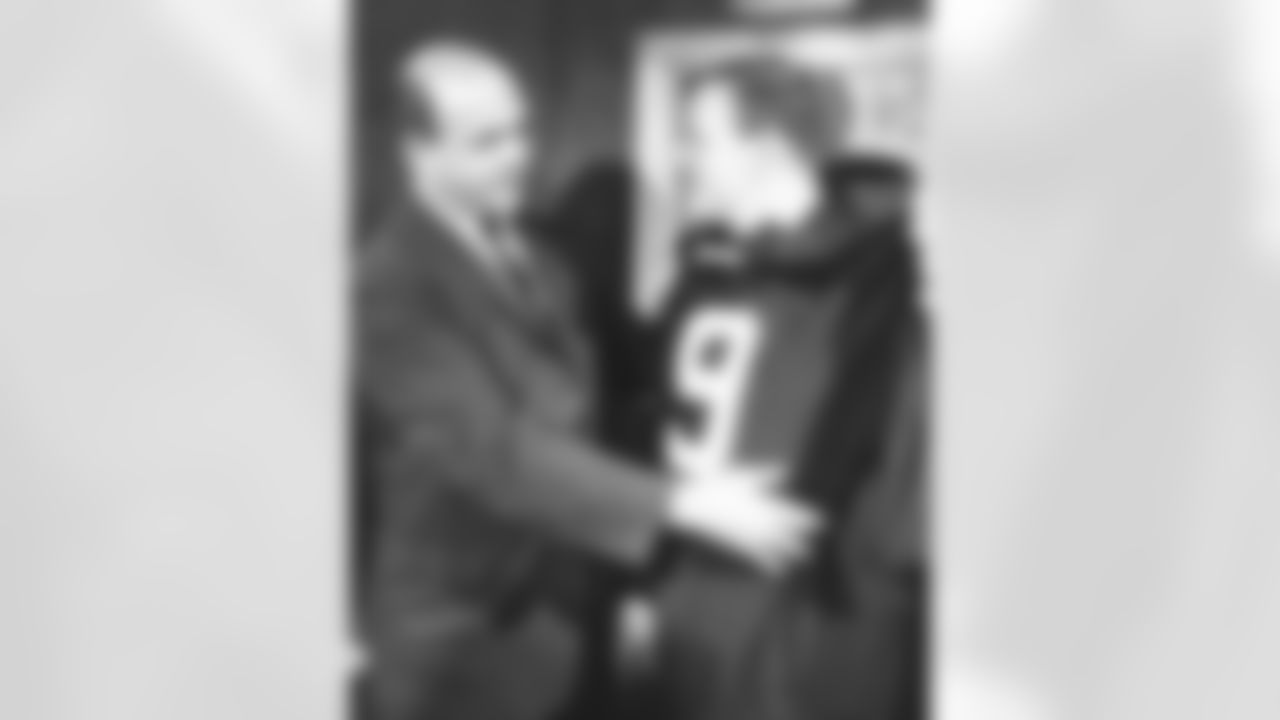
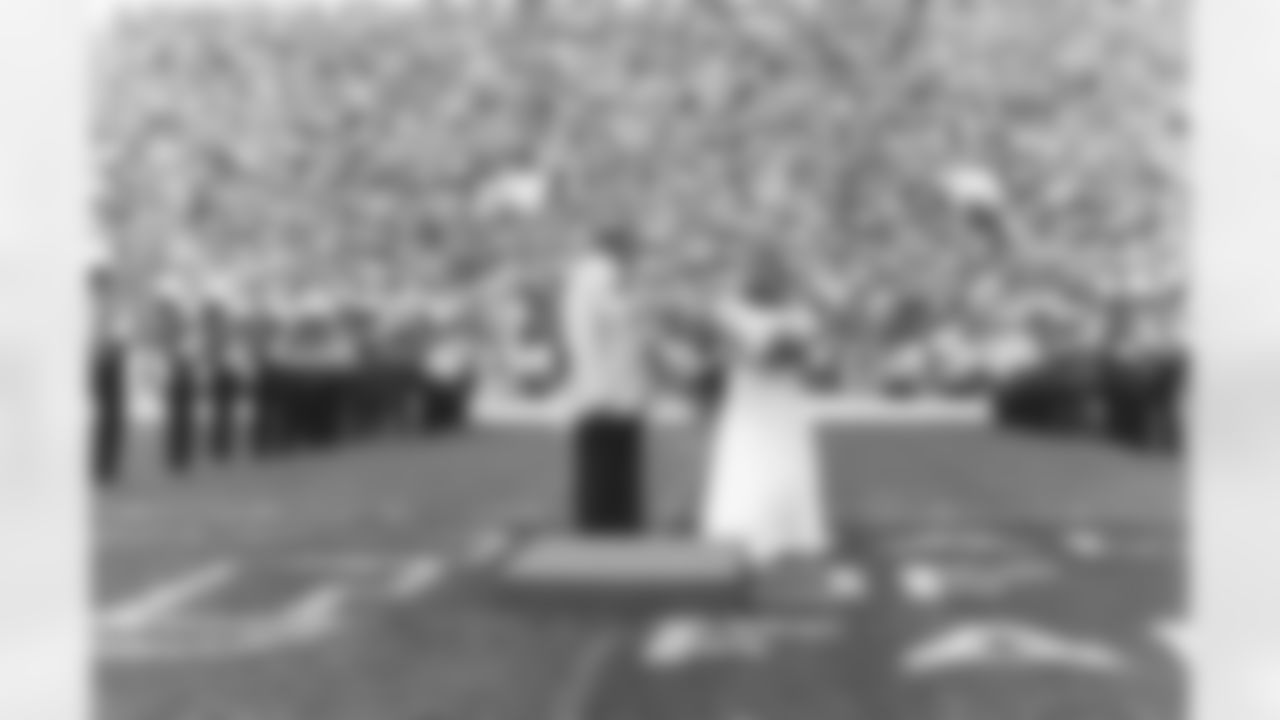
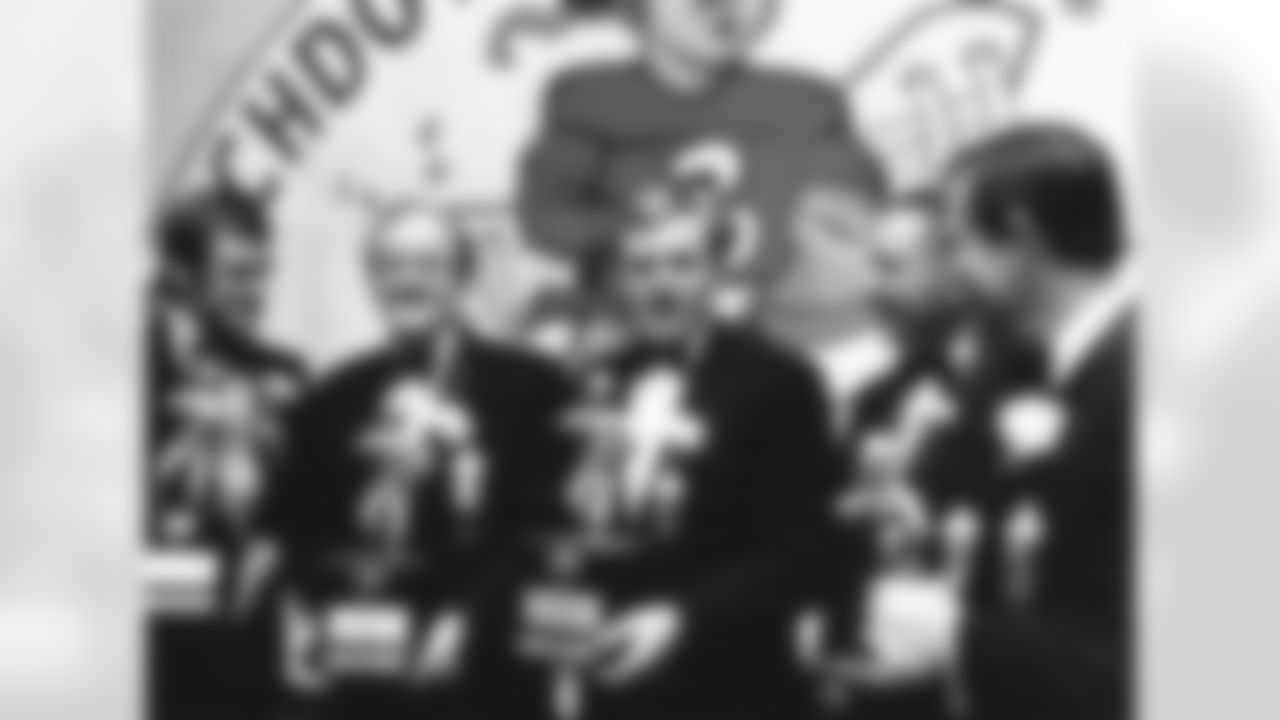

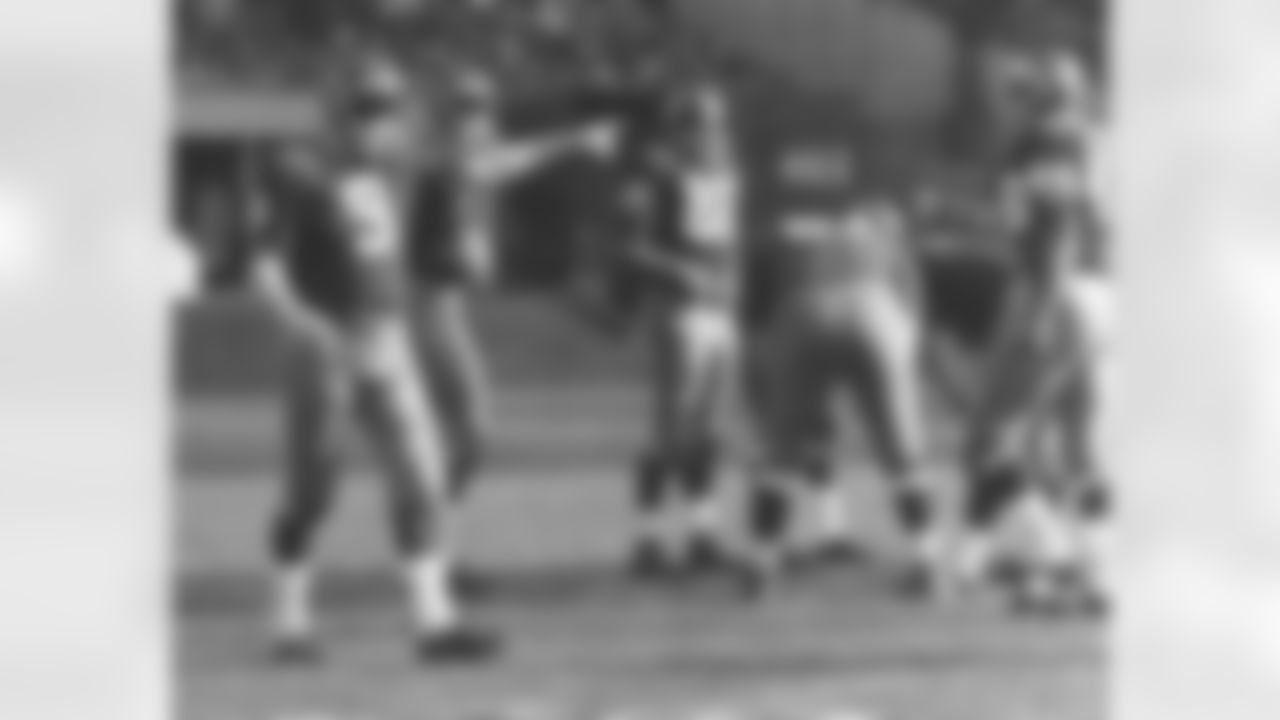
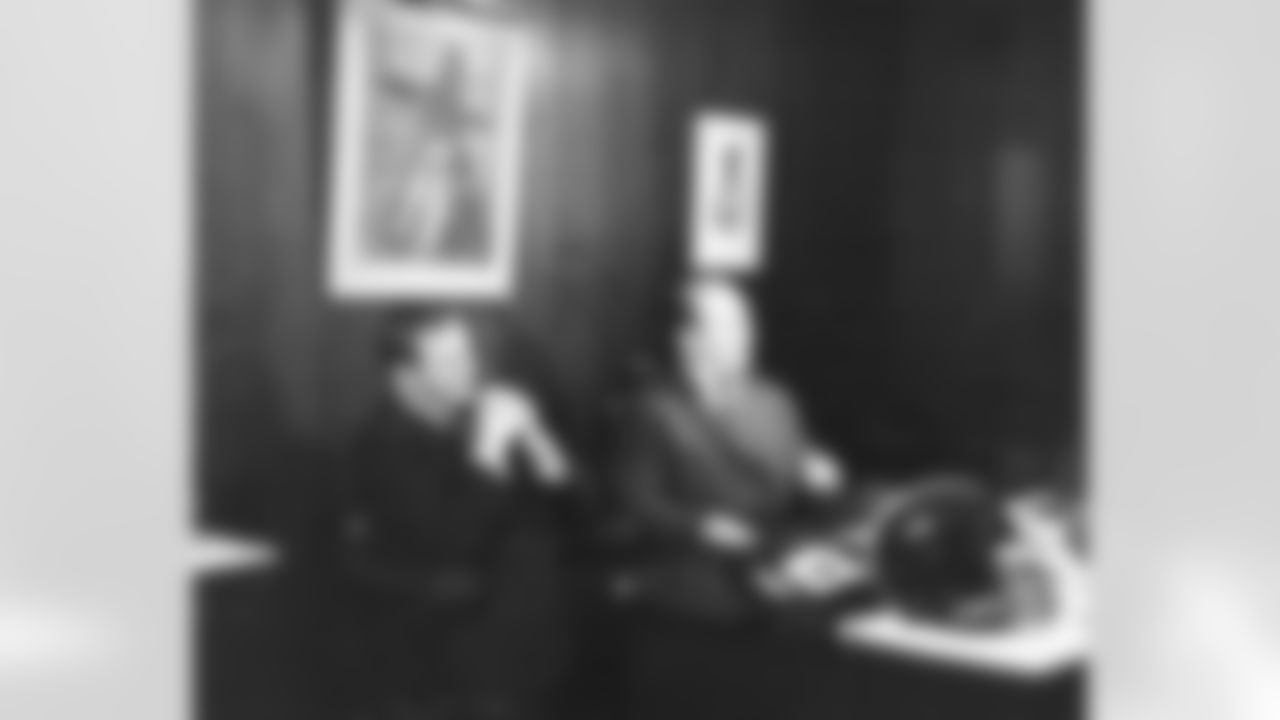
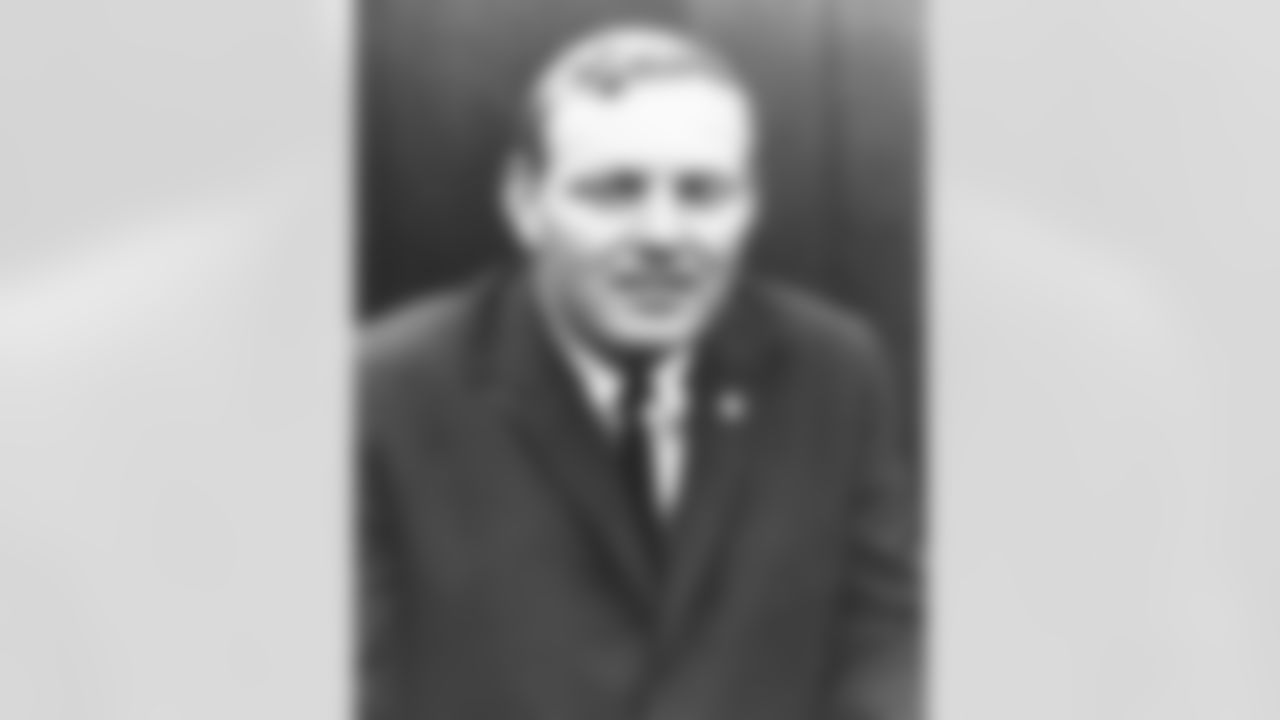
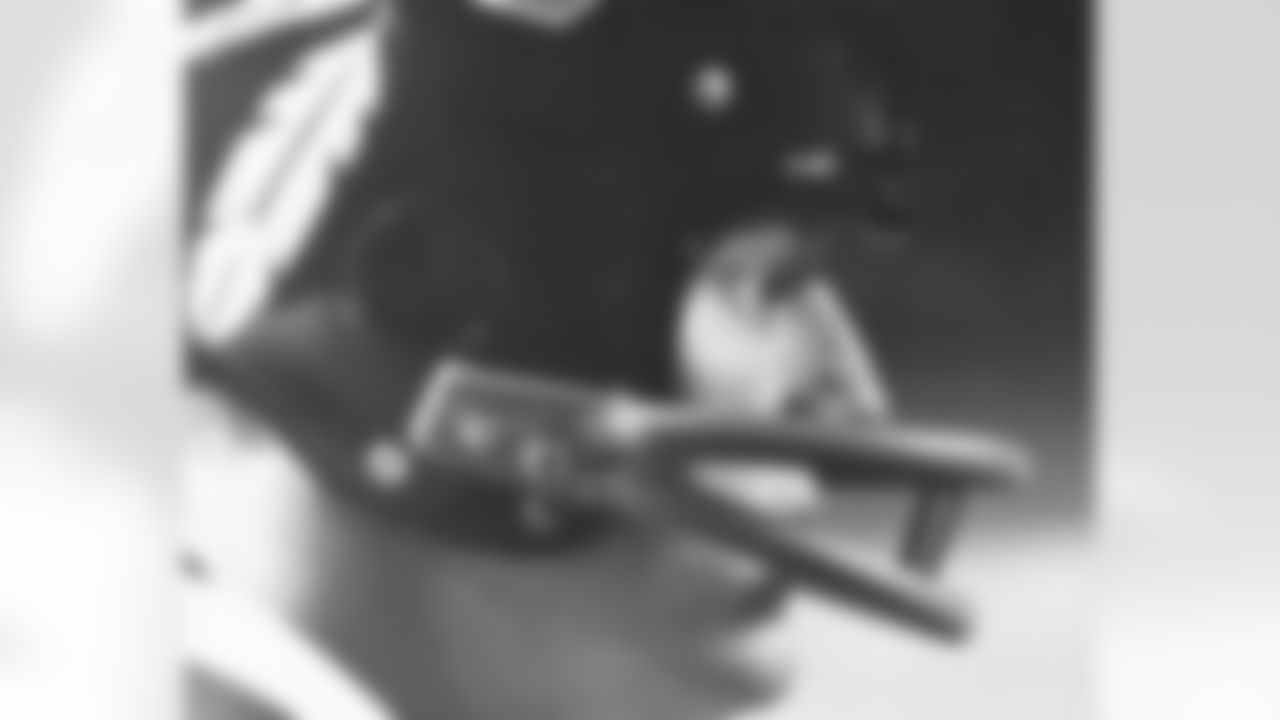
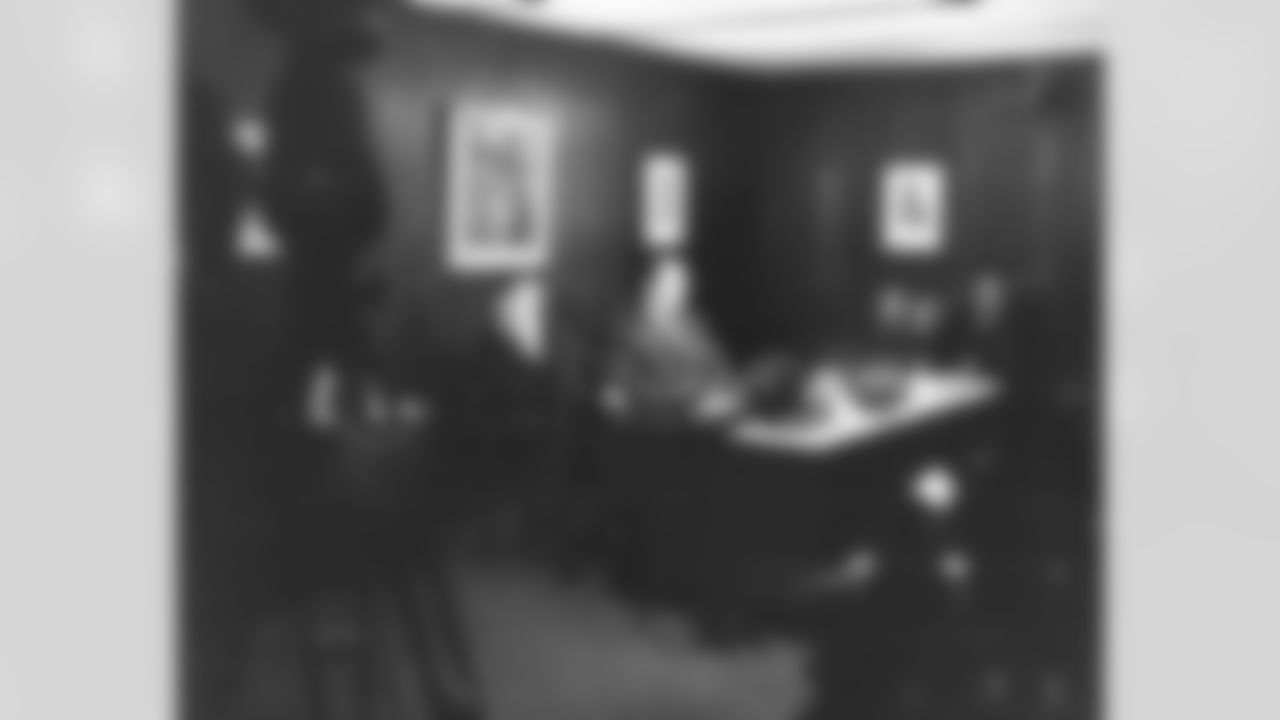
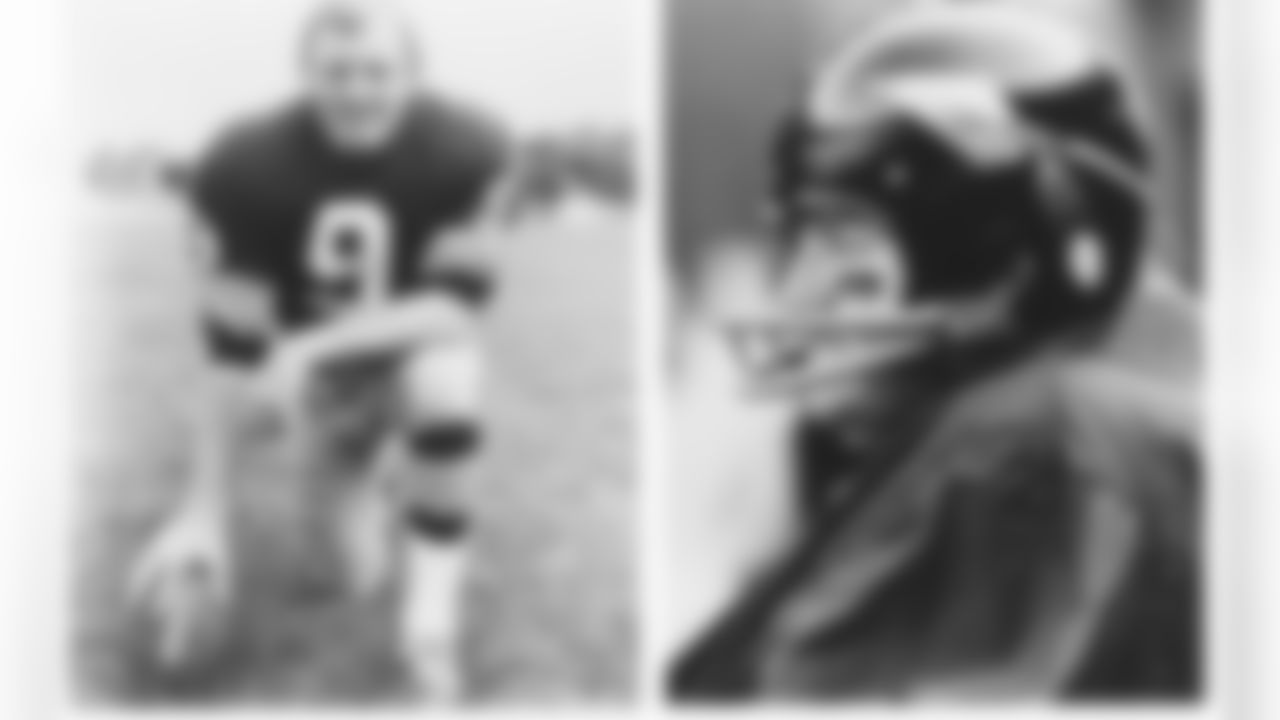
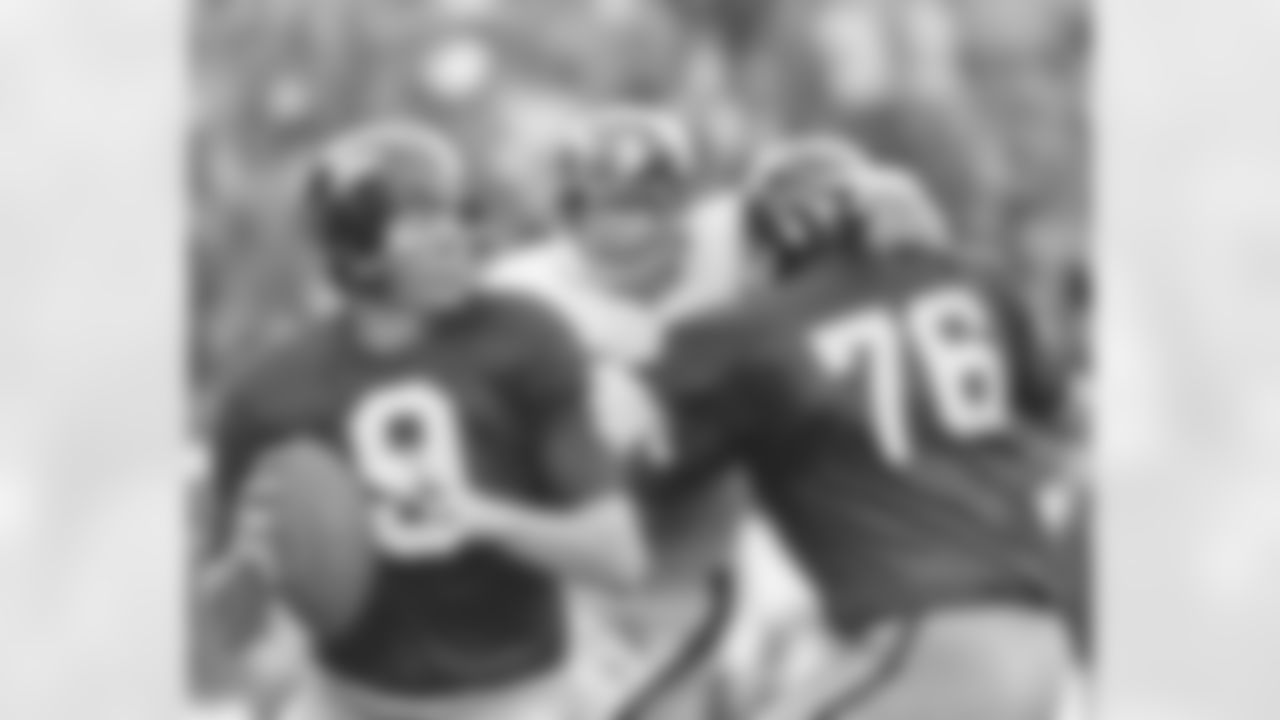


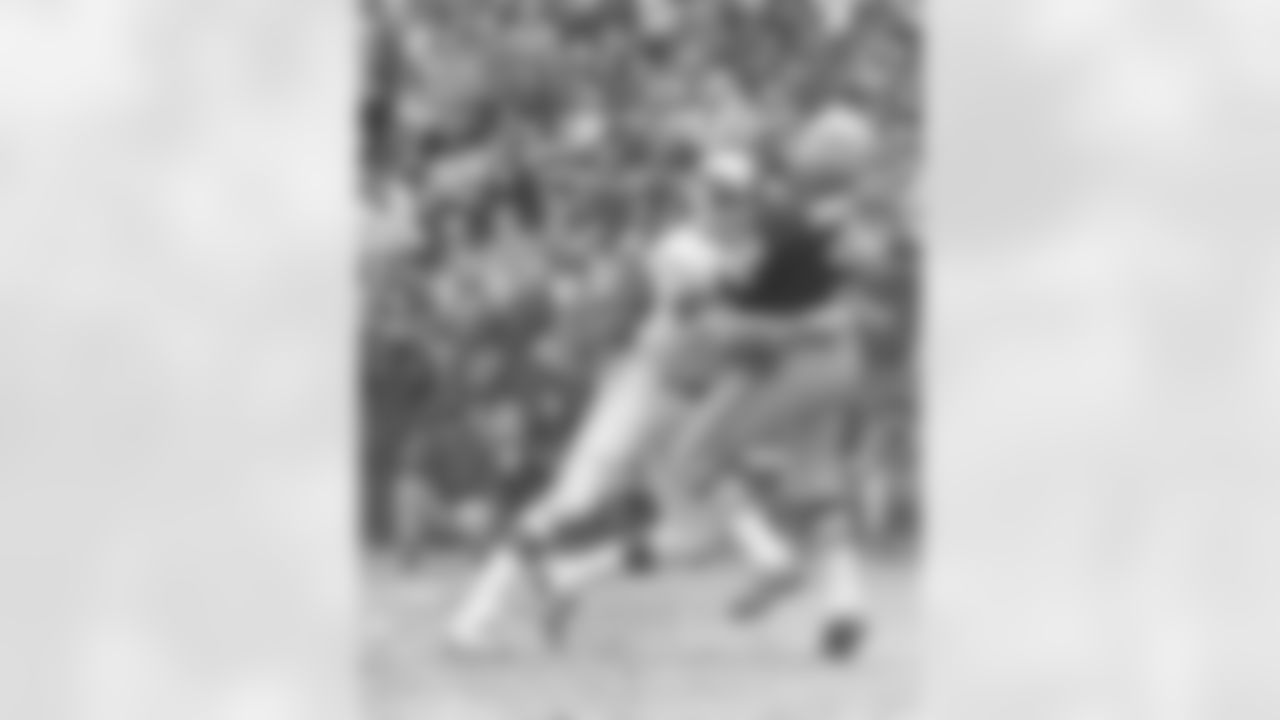
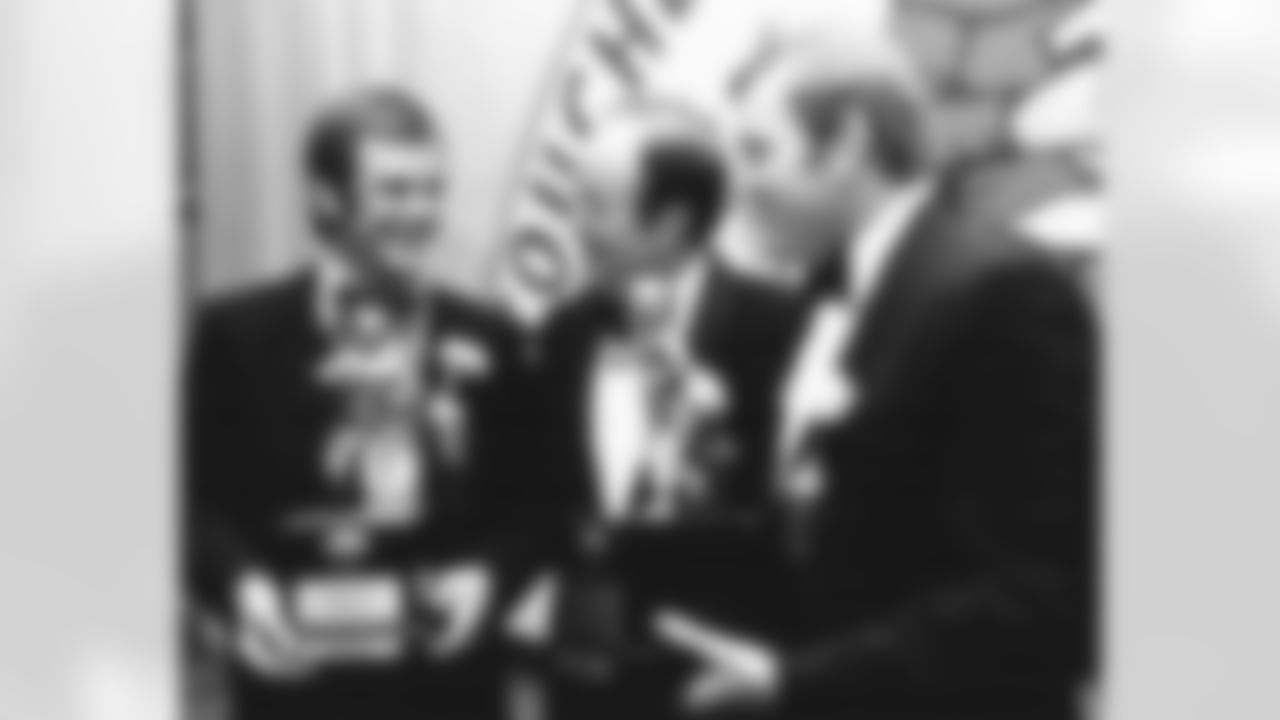
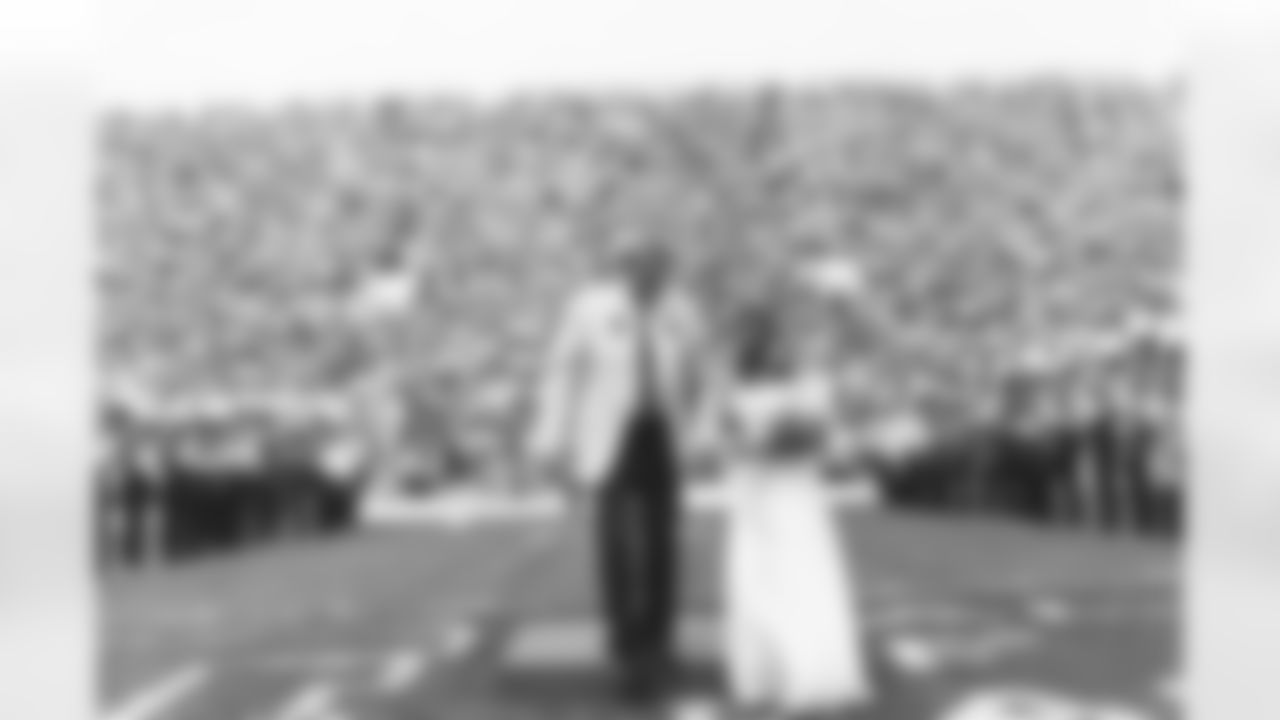
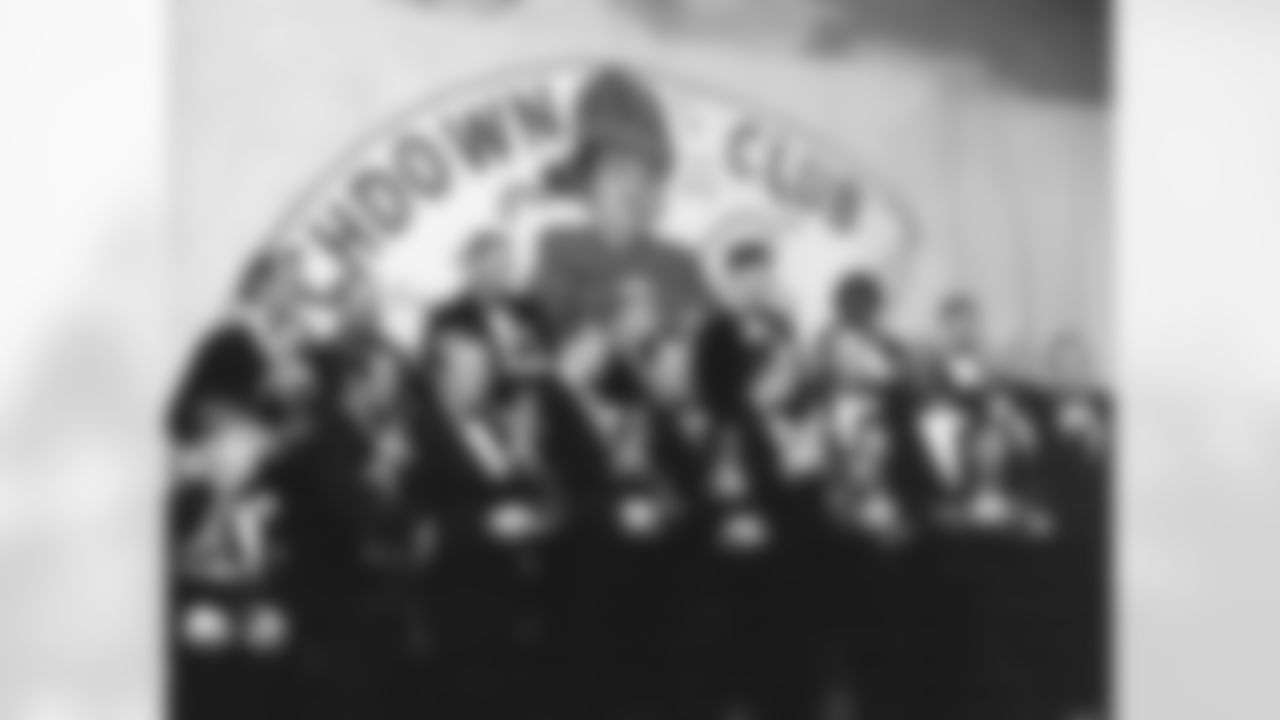
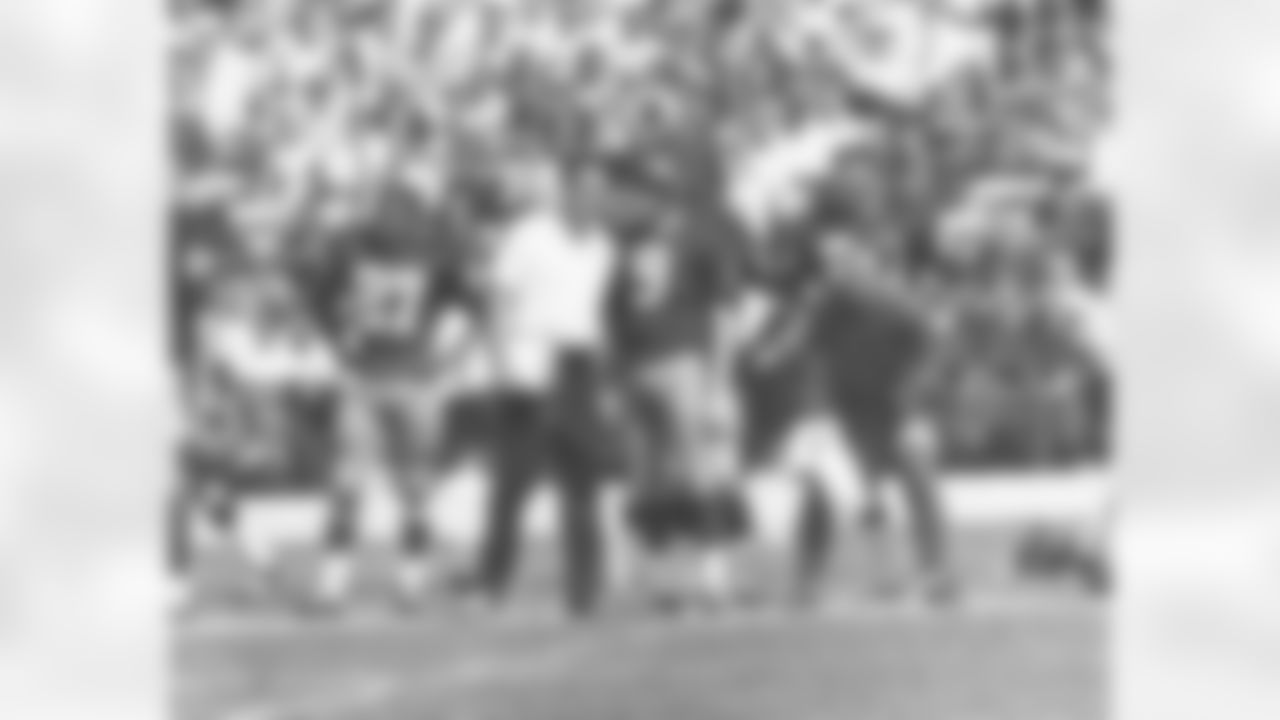


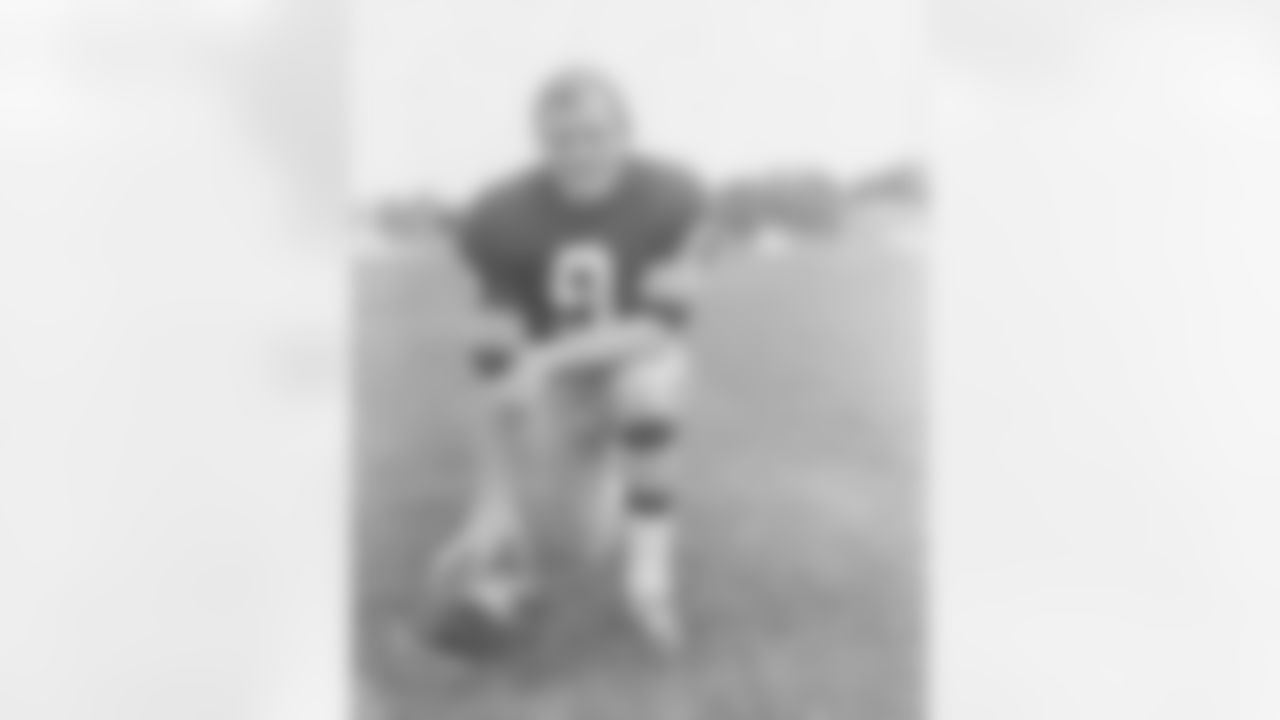
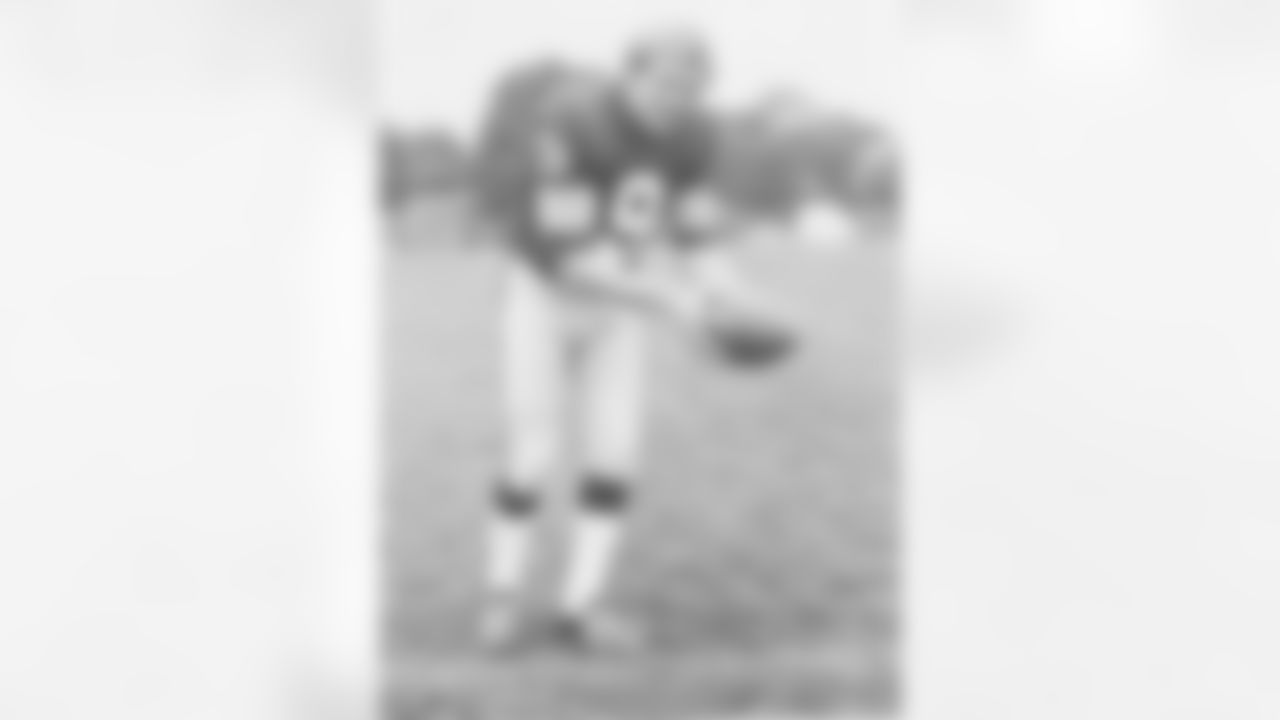
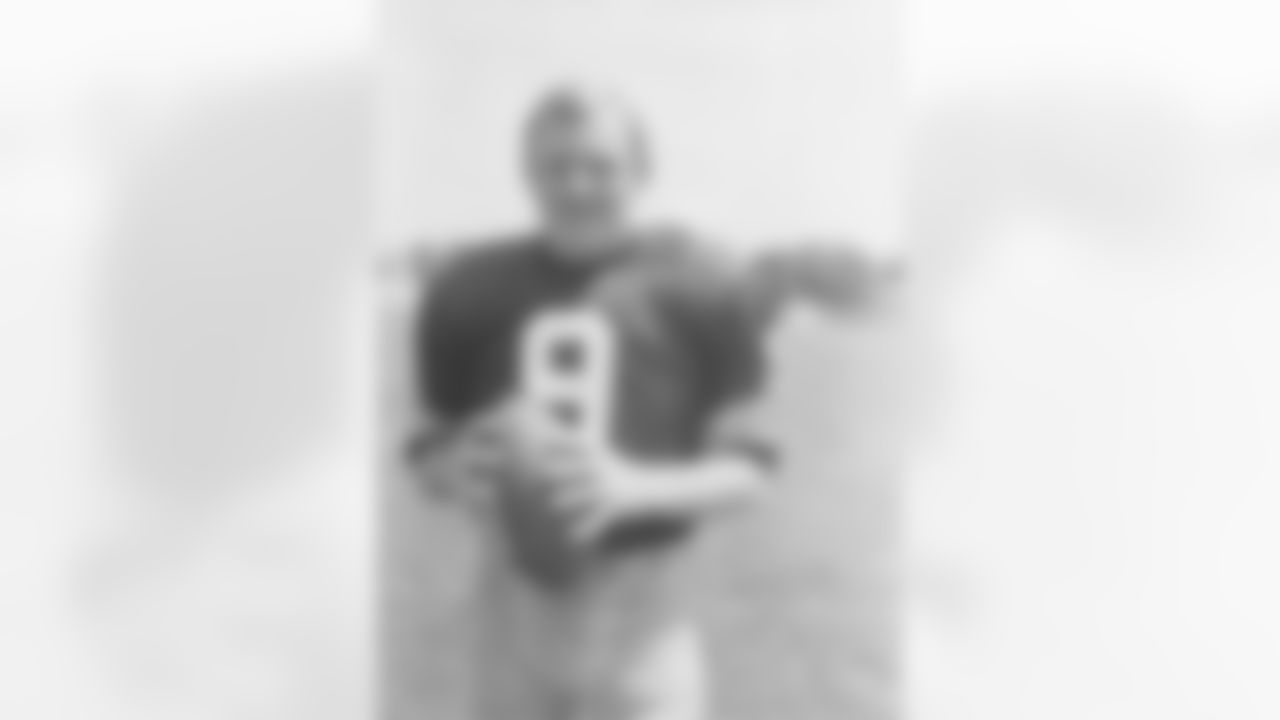
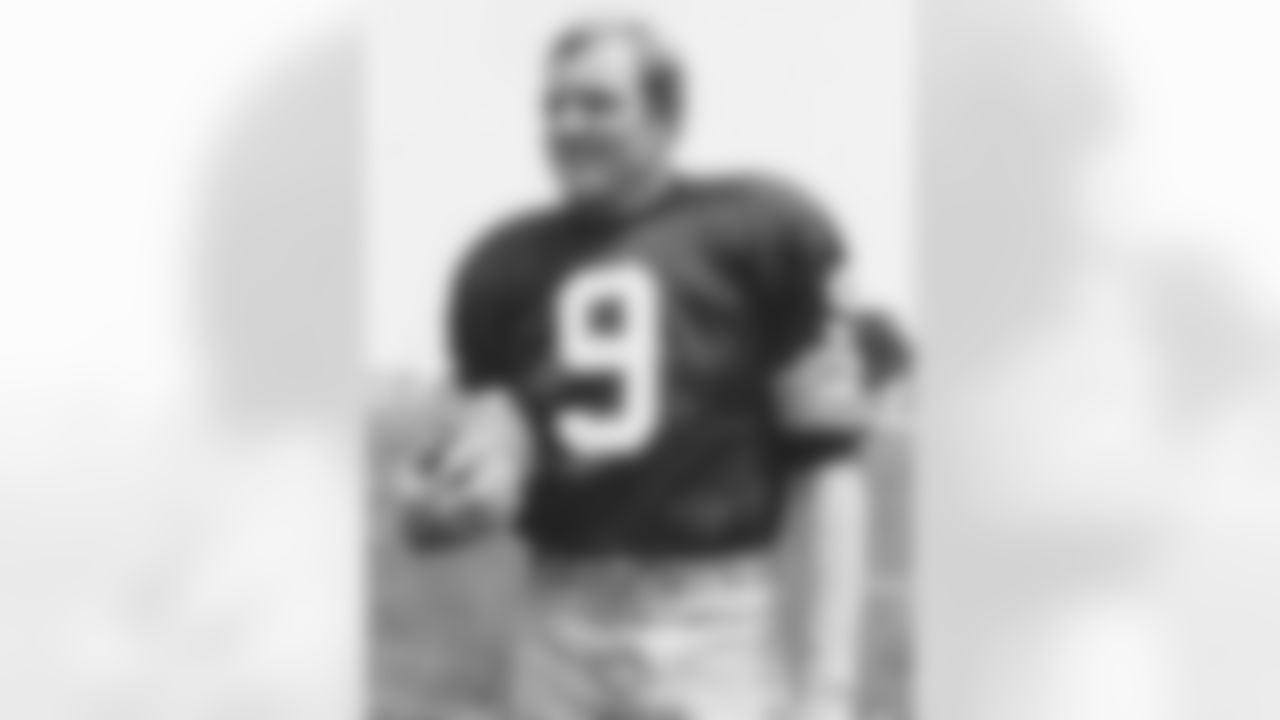
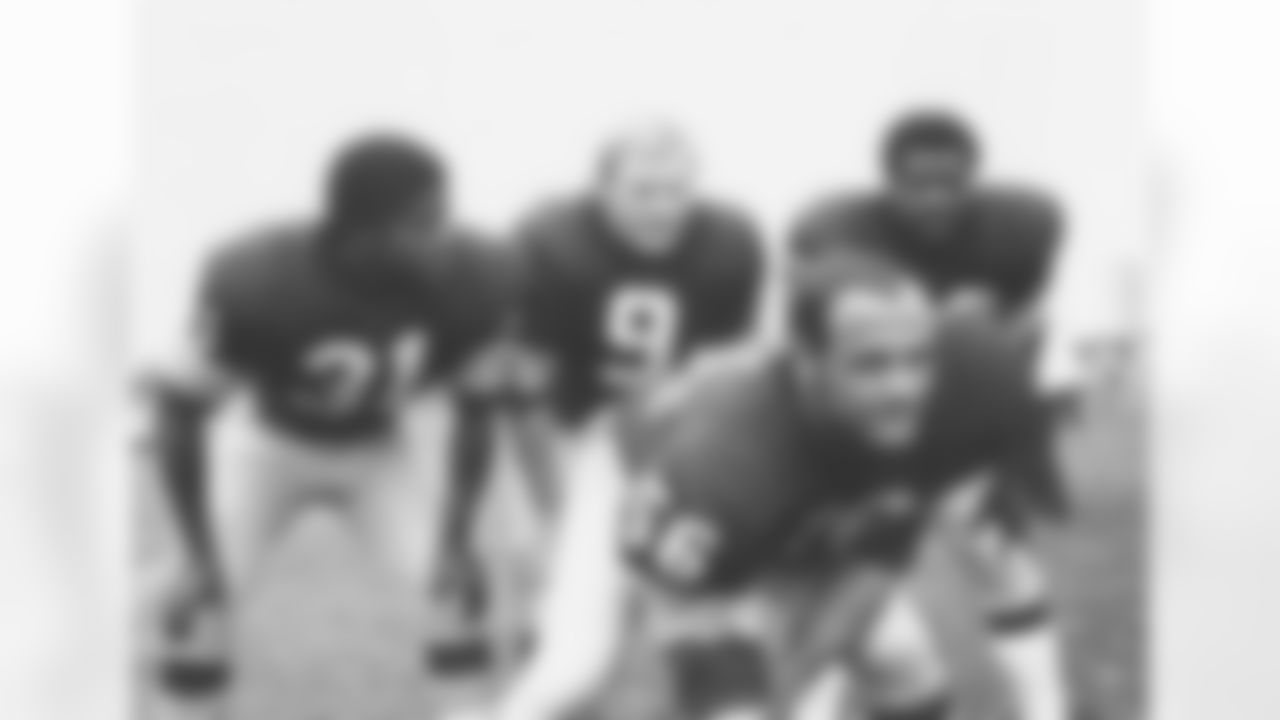
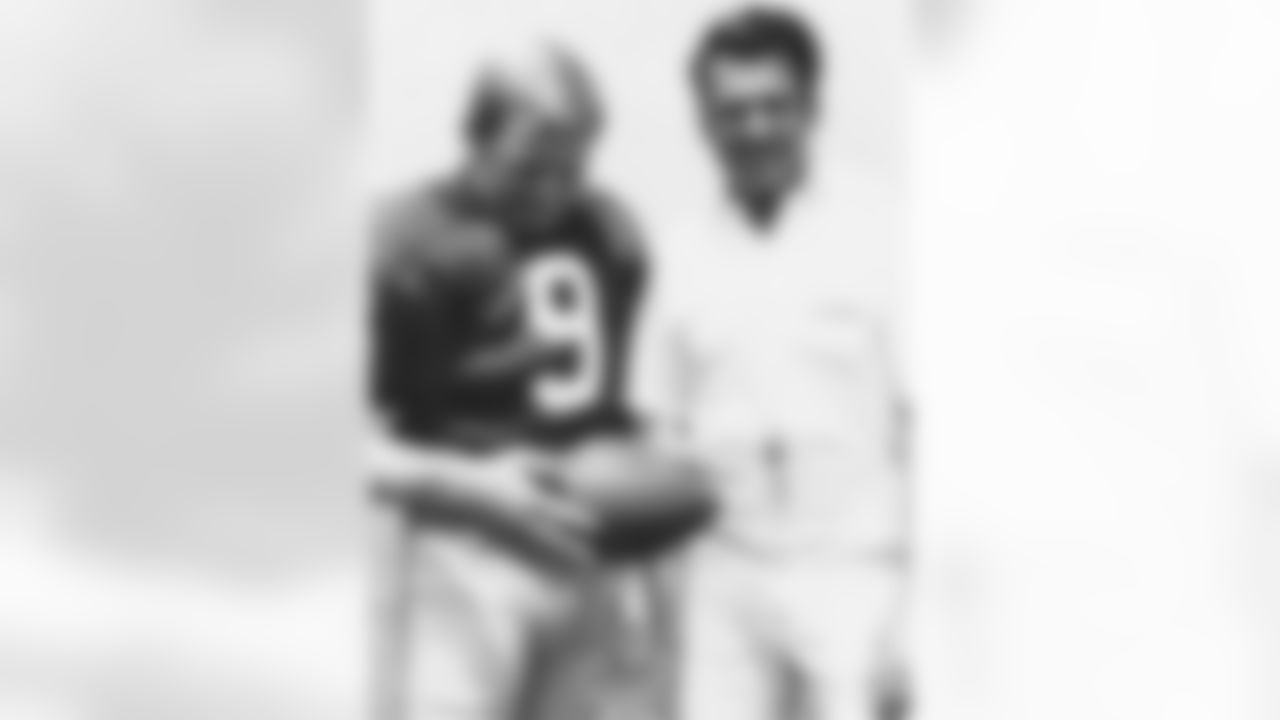

Washington Redskins Sonny Jurgenson (9) during a game from his 1972 season with the Washington Redskins. Sonny Jurgenson played for 18 seasons with 3 different teams, was a 5-time Pro Bowler and was inducted into the Pro Football Hall of Fame in 1983.(David Durochik via AP)
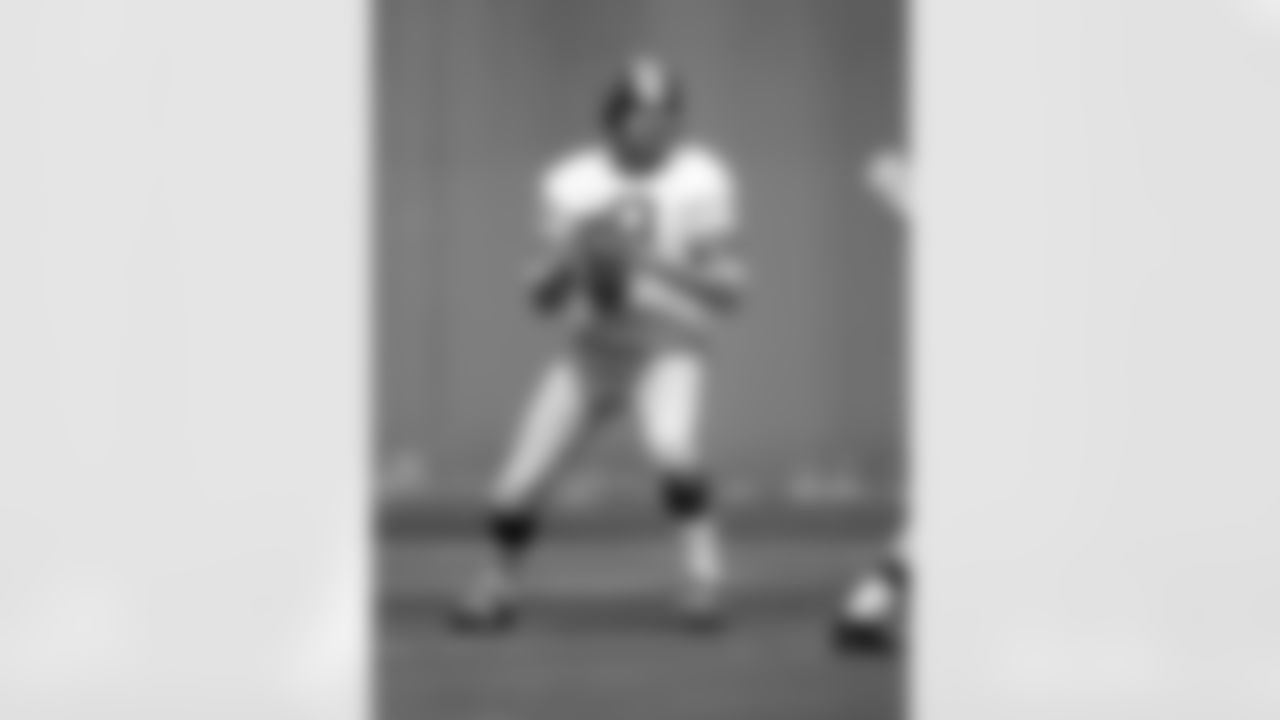
Washington Redskins Sonny Jurgenson (9) during a game from his 1972 season with the Washington Redskins. Sonny Jurgenson played for 18 seasons with 3 different teams, was a 5-time Pro Bowler and was inducted into the Pro Football Hall of Fame in 1983.(David Durochik via AP)
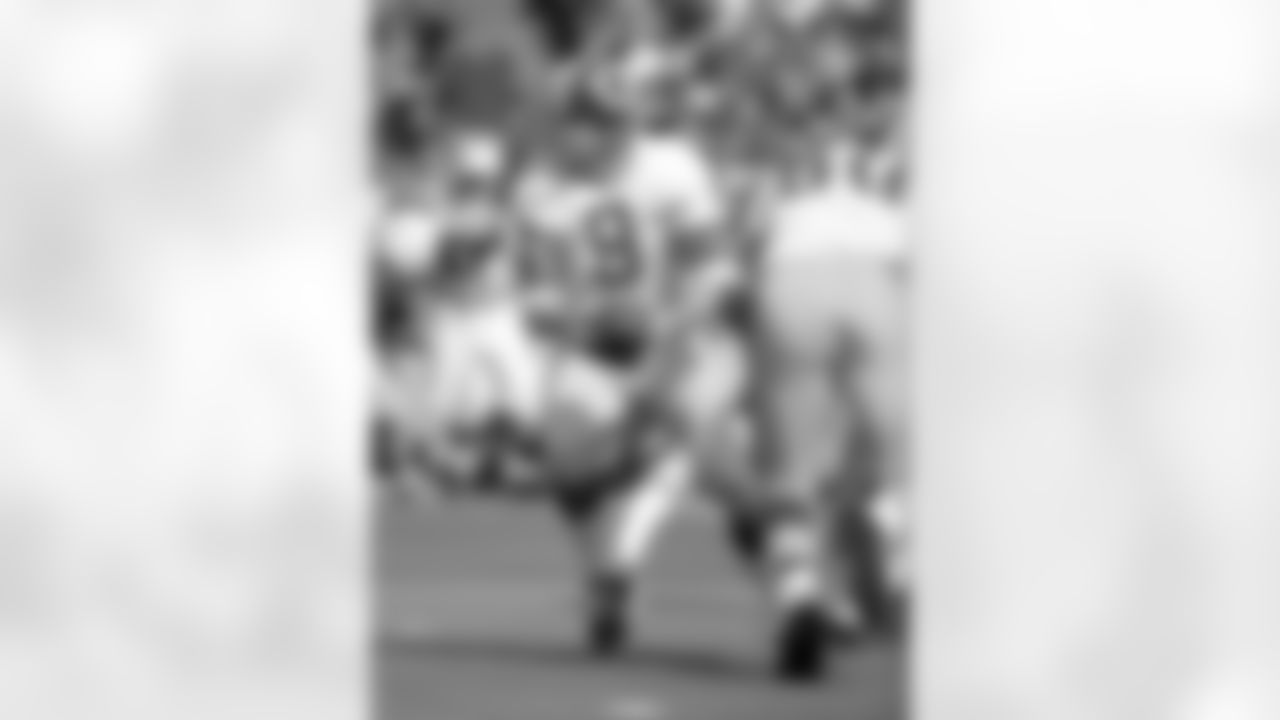
Washington Redskins Sonny Jurgenson (9) during a game from his 1972 season with the Washington Redskins. Sonny Jurgenson played for 18 seasons with 3 different teams, was a 5-time Pro Bowler and was inducted into the Pro Football Hall of Fame in 1983.(David Durochik via AP)
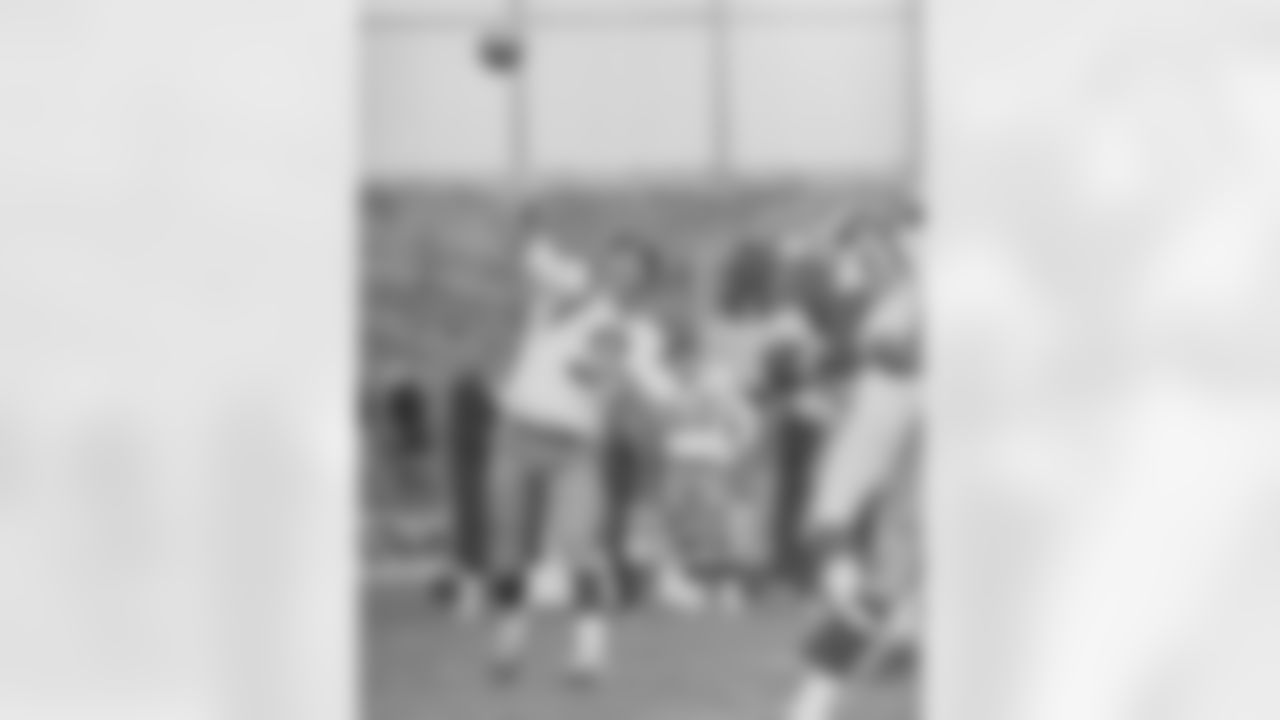
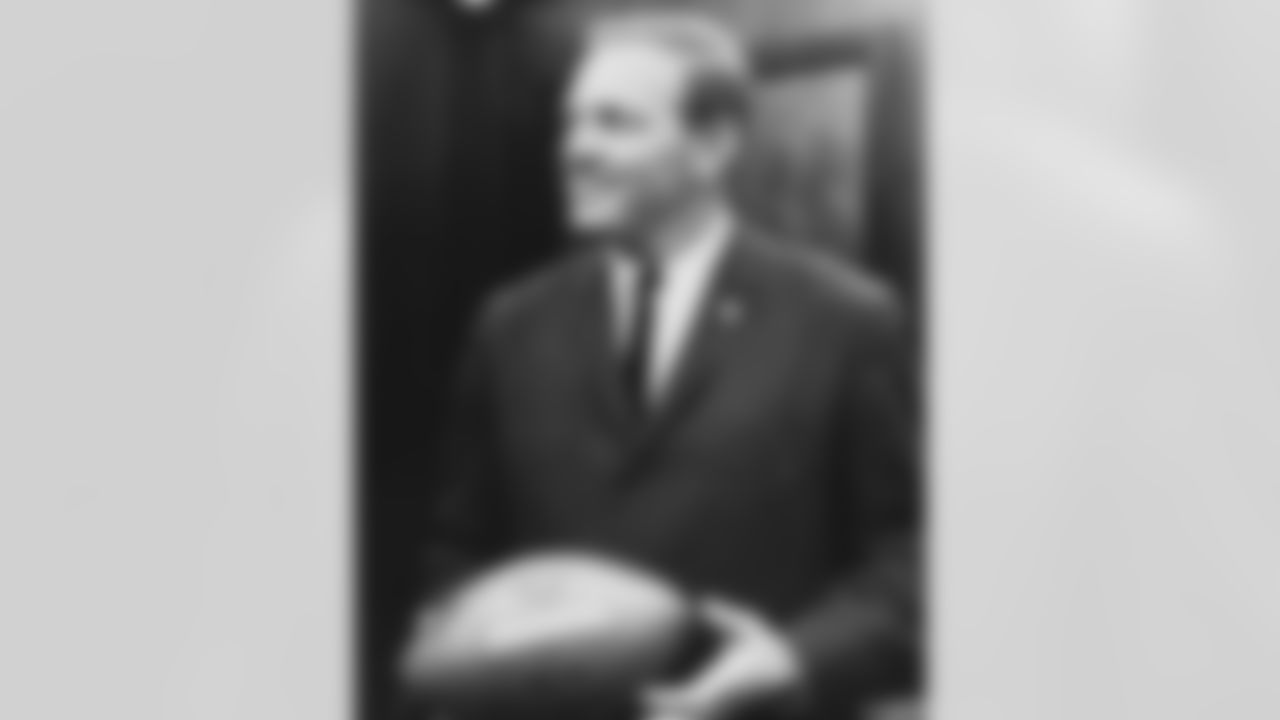
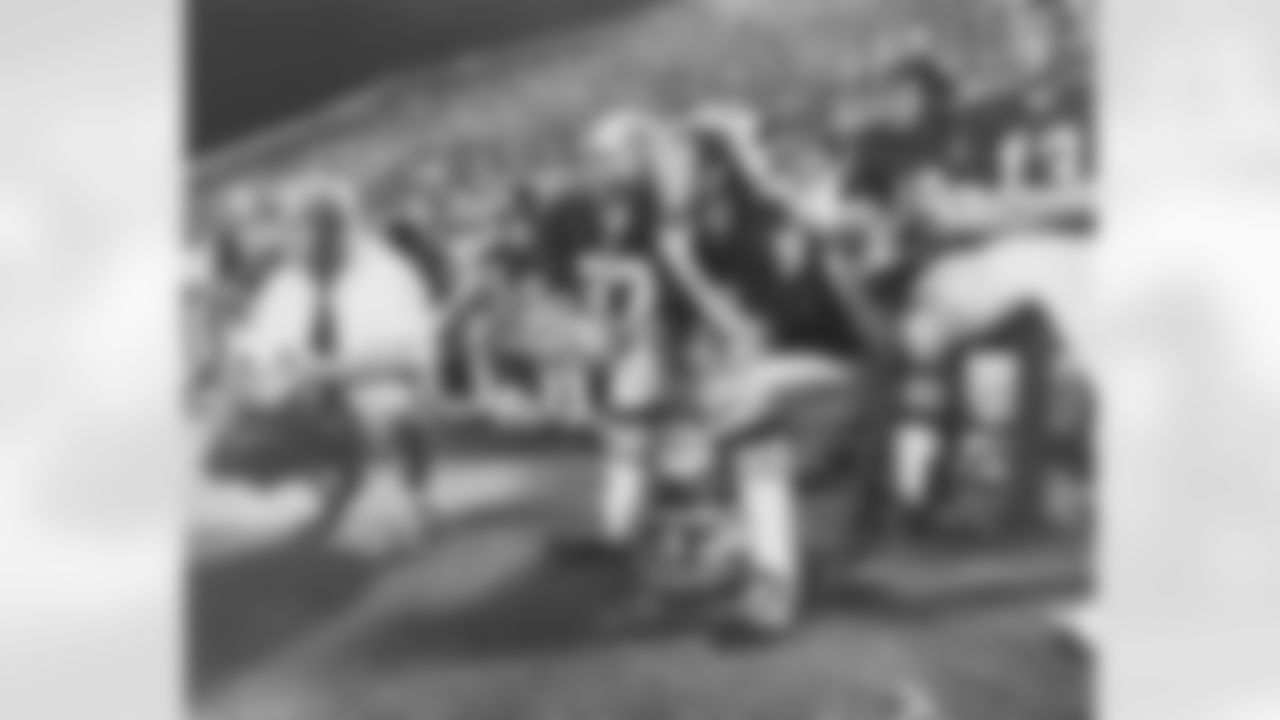
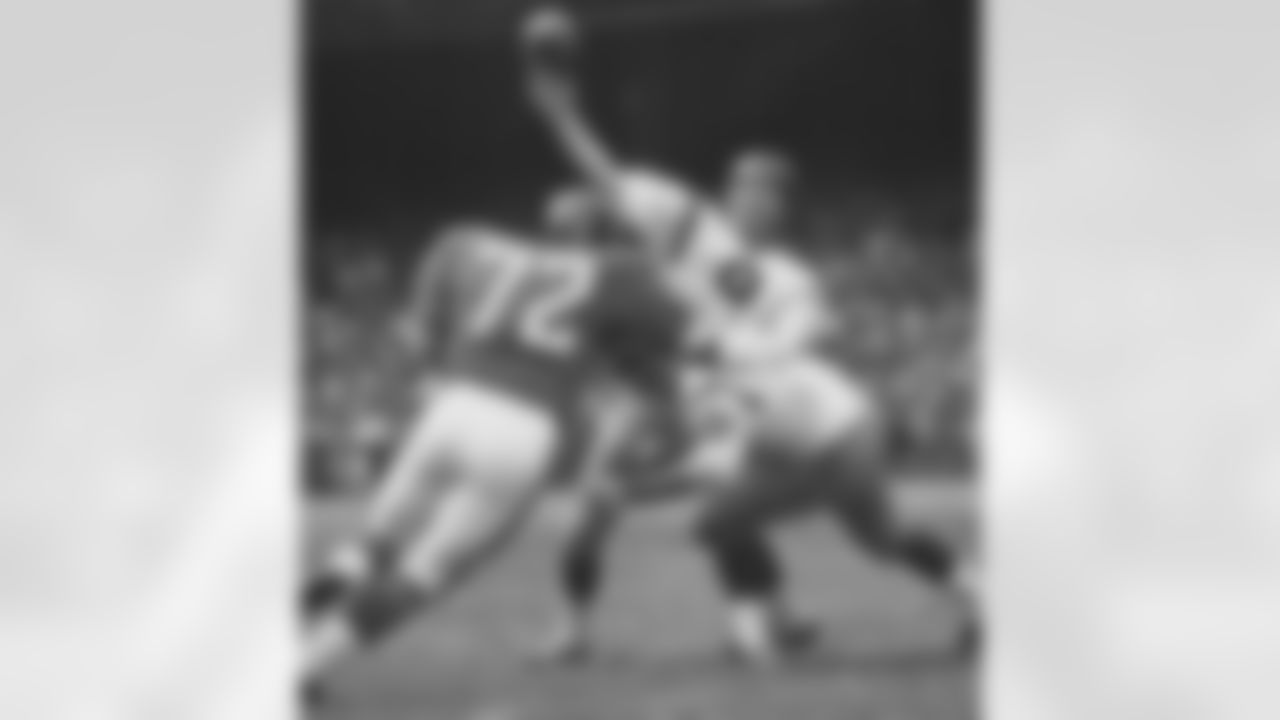
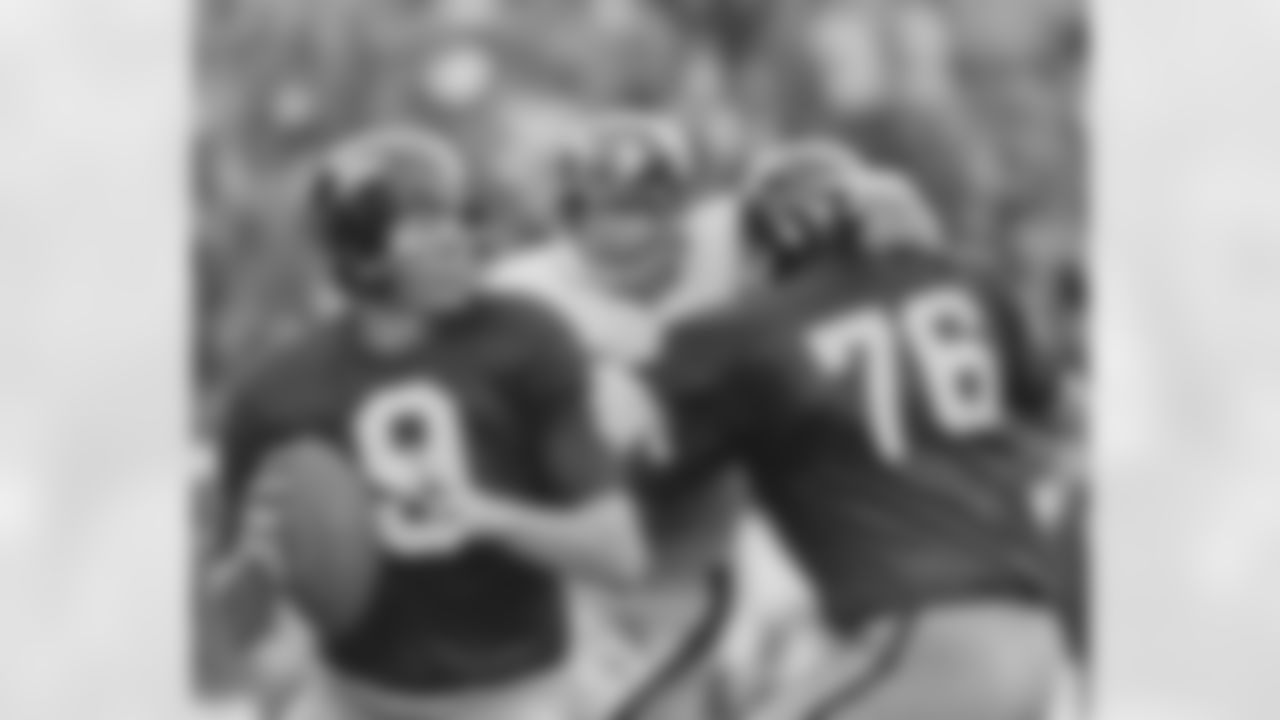
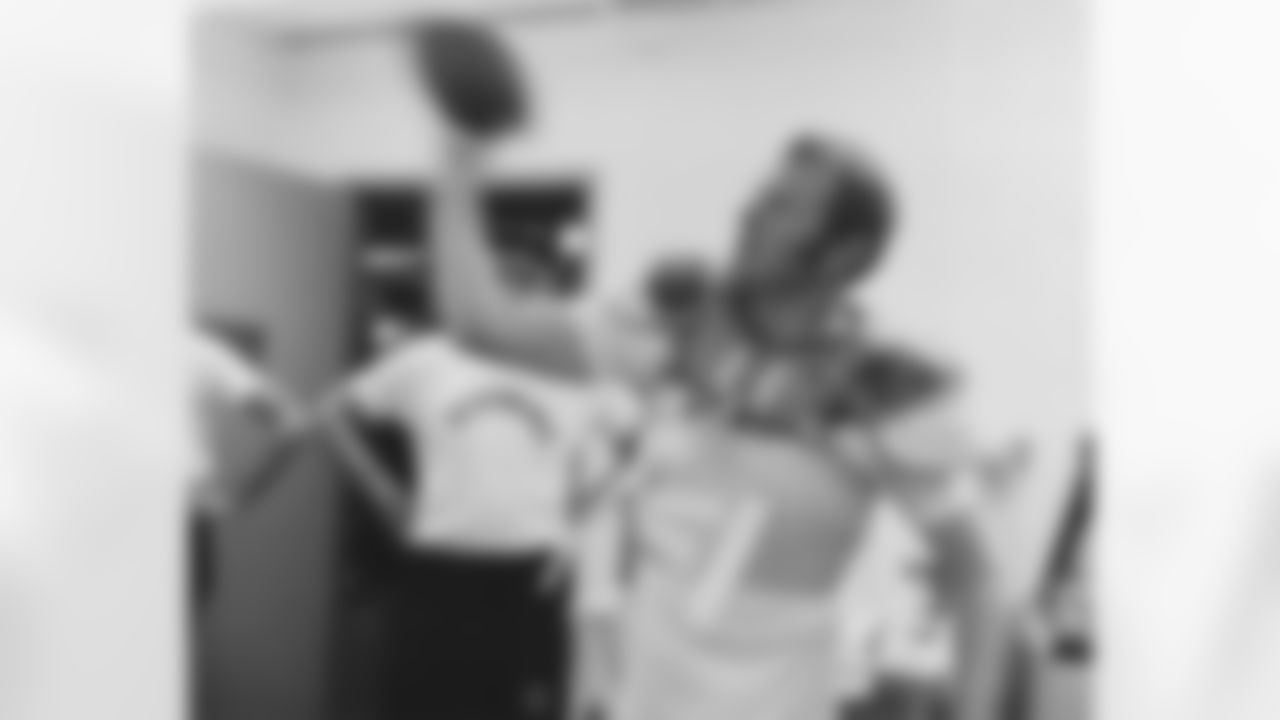
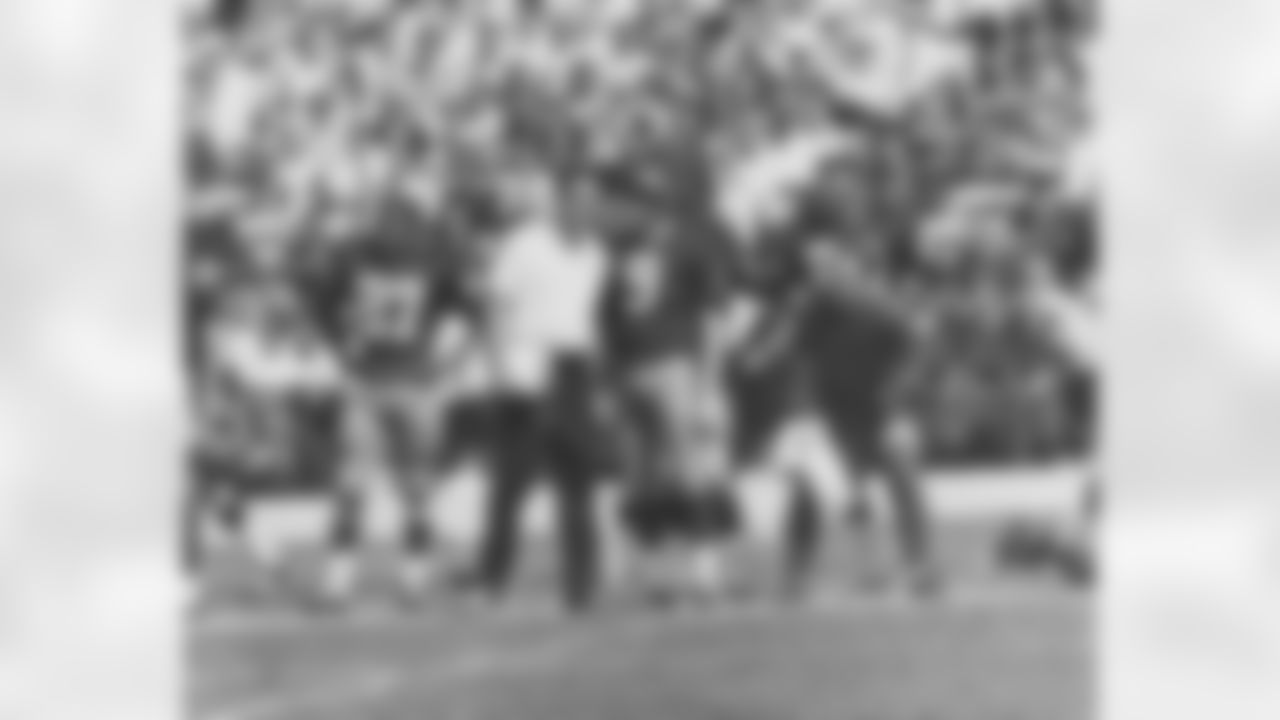
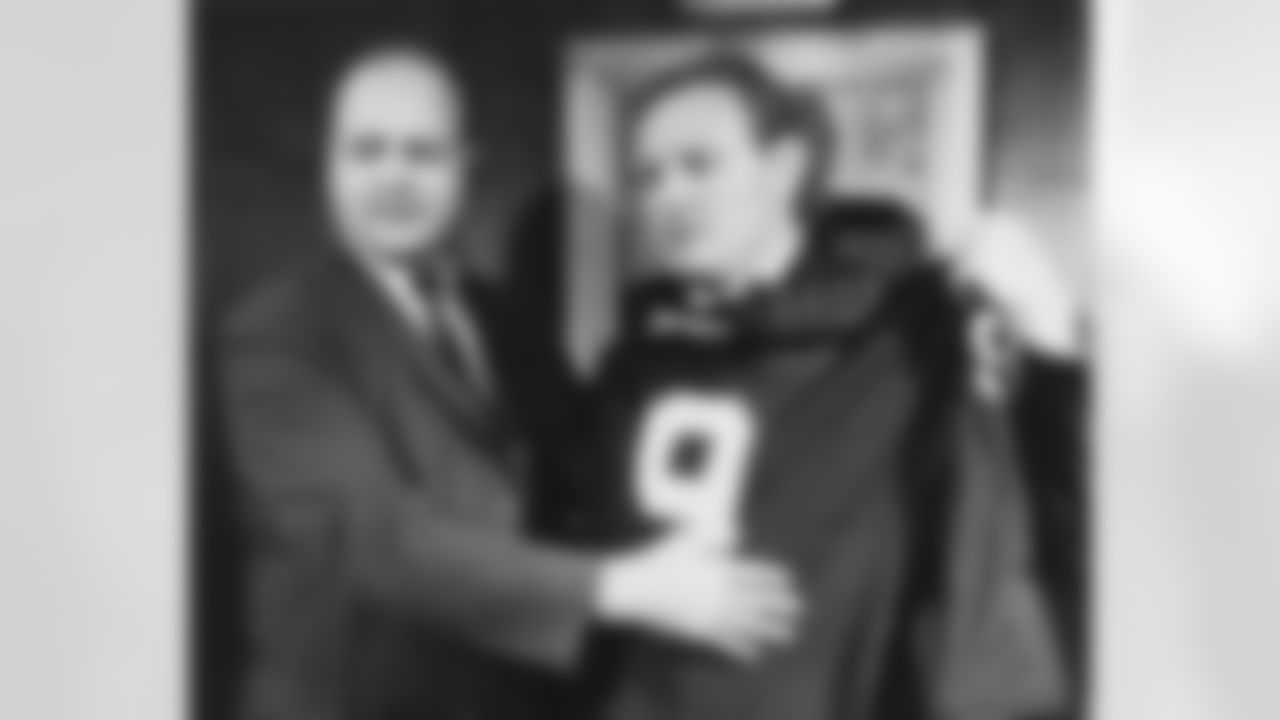
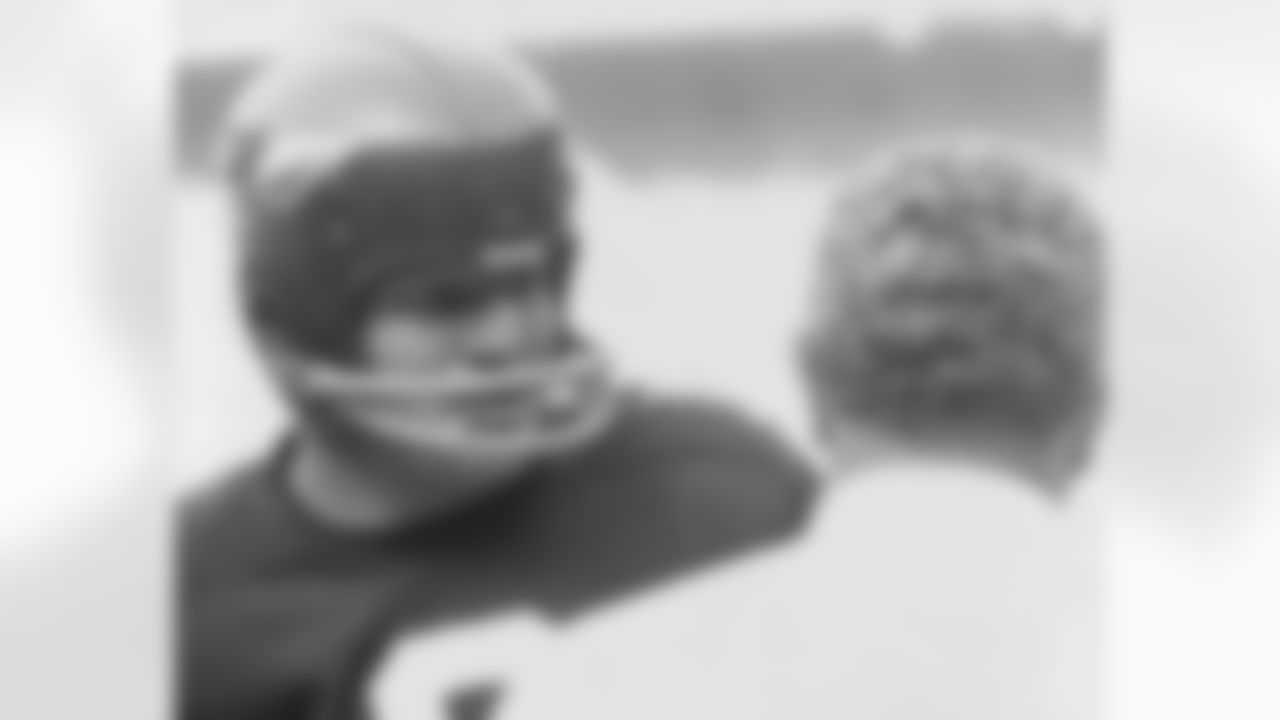
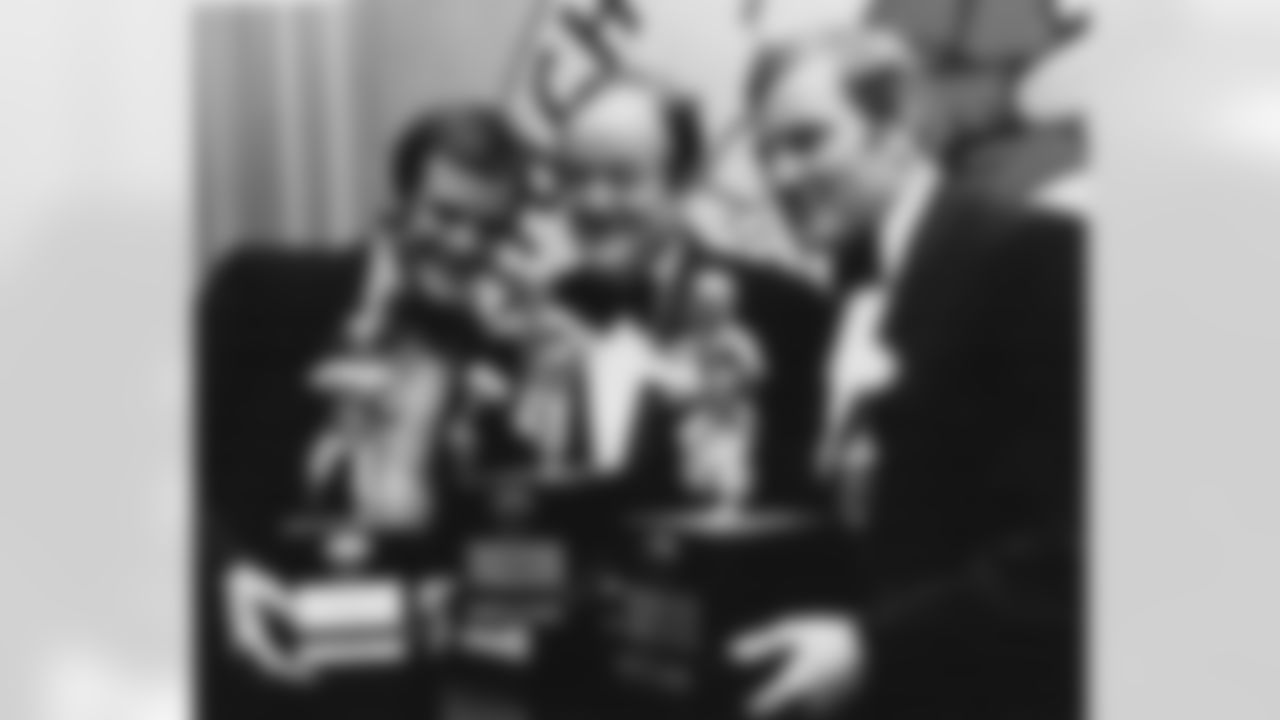
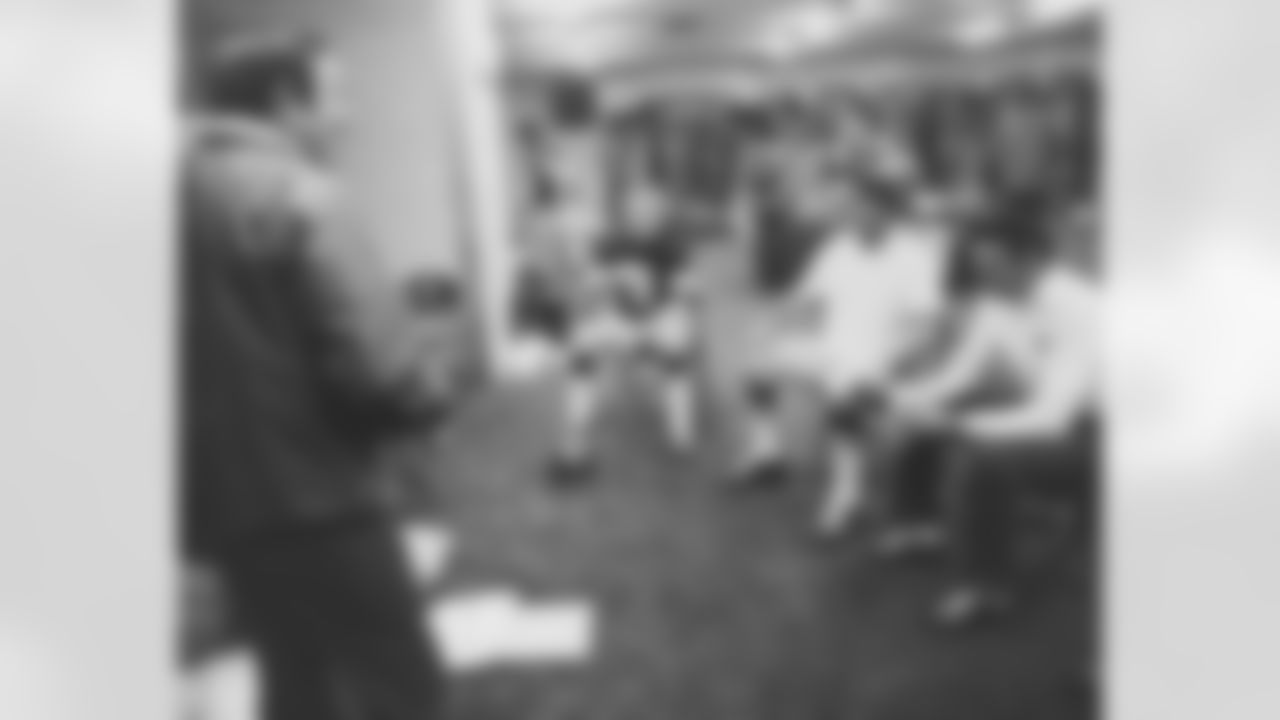

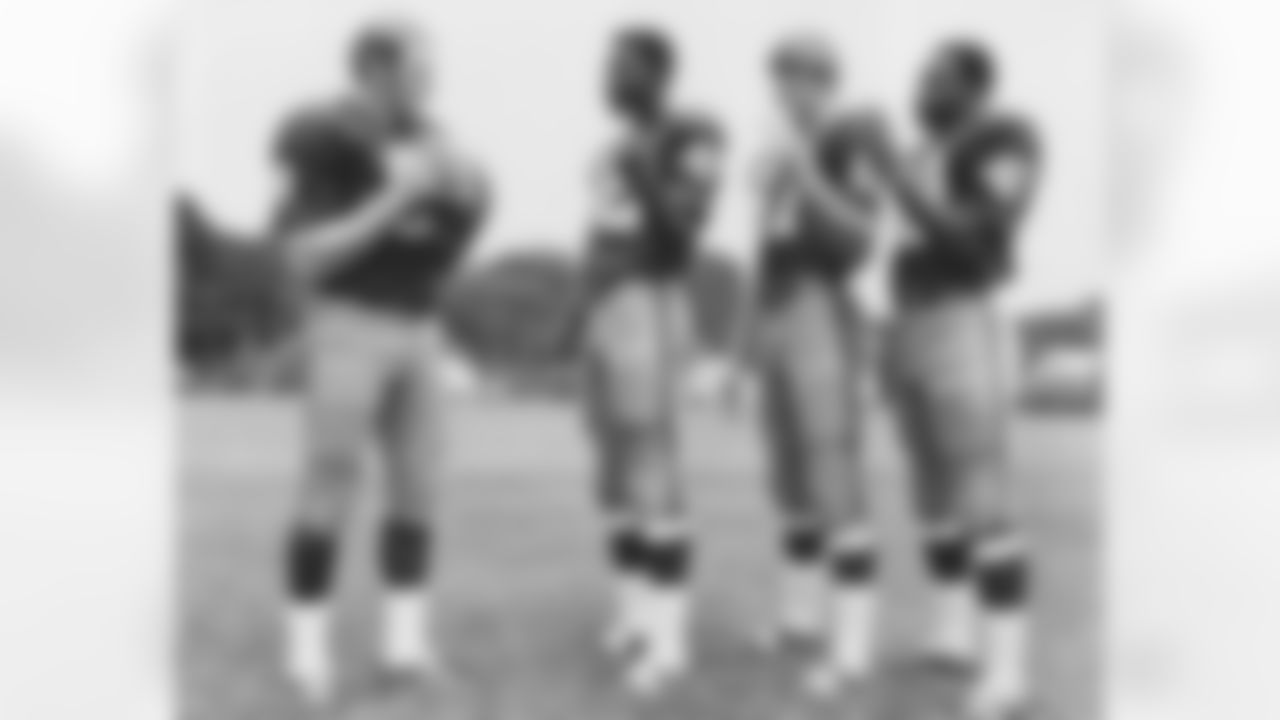

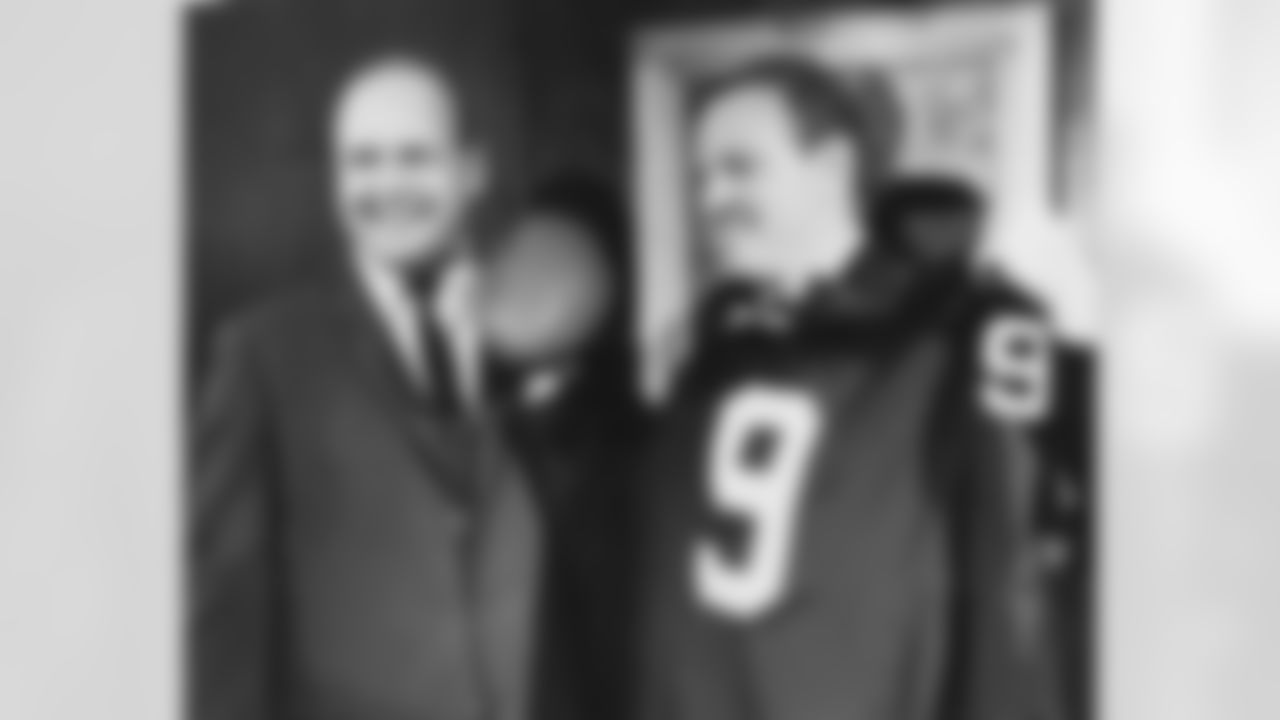
How much did you just soak in the moment that you were between two legends of the sport?
"It's interesting, because once you start doing it, you forget. And you start taking it for granted because you're there with them all the time. And look, this is not a three-hour job. I mean, I'd leave the house at nine o'clock in the morning and I'd get home at eight o'clock that night from a home game. You know, it was an all-day affair. You are with him a couple hours before the game. You're with him a couple hours in the locker room afterwards. So, after a while you're around him so much, you just take it for granted. Maybe the most eye-opening moment for me was one year in Dallas at Texas Stadium. We had a standing rule. There were no visitors allowed in the booth during a broadcast. No distractions. Couldn't have it. So, I'm sitting there prepping my stuff, getting ready for the broadcast, and Sam walks in and says, "Hey, I got a friend of mine that lives down here, and I asked him to join us for the first half of the game." And I said, "Okay, who is it?" And he said, "Joe DiMaggio."
So, I still remember this. I'm sitting in Texas Stadium, I got Sonny Jurgensen on my left, Joe DiMaggio and Sam Huff on my right. And Joe DiMaggio fits in to the broadcast like he's a natural. He's telling stories and talking about things. It was incredible. In fact, that's one of those times when I look back now, my only regret is I didn't have a cell phone to take a picture.
How long does it take to normally build that chemistry?
"It depends on the personality and the intelligence of the person you're working with. I think it varies every time you get combinations that just never work. And other times, other times it just does. And for us, miraculously it just clicked. It just worked. And maybe because our ages were close. I'm 11 years younger than Sonny. But we were in the same generation pretty much. And I think the other thing, too, was there weren't egos. Sam didn't remind you that he played. He was a great linebacker in the Hall of fame. Sonny didn't remind you. He was in the Hall of Fame as a quarterback. You knew that, but it was not something they wore on their shirts. They were broadcasters. And they were football players. I think, if anything, they were proud to be football players and they expected a lot from the football players they watched.
Bram Weinstein wrote a column and he said that Sonny was "a master of being amazing, but not making everyone acknowledge that fact." What do you think of that?
"He was a guy who still shied away from the limelight. He's very uncomfortable in situations where there are a lot of people there to adore him. It's not a comfortable situation for him. But the other thing is being with him is like being with royalty. Because everybody knows him in Washington anyway. And you'd go on the road and people would come up to us in airports and say hi to Sonny and they'd talk to Sonny. My classic is we were in Cleveland waiting for an airplane, and this man walks up with his young son and said, "Excuse me, Mr. Jurgenson, I'm sorry to bother you, but isn't your first real name Christian?" He said, "Yes, it is." And he says, "Well, I'd like you to meet my son Christian." And Sonny smiles and shakes the kid's hand. And they walk off and Sam looked at me and he said, "They always named their kids after the quarterbacks. They named their dog after the linebackers."
The other thing was people would come up with and talk to Sonny, and they related to him because he was the every man. They watched him play with an offensive line that wasn't that good. They watched him get hit a lot. They watched the things he went through. Here he is playing on a George Allen team that's going to the playoffs, and he snaps his Achilles tendon in Yankee Stadium, and he's out for the rest of the year. And here he is with Vince Lombardi as his coach, and he's absolutely thriving. He's in the best shape of his life. Lombardi dies of cancer. So, every time Sonny turned around, something would happen. And fans identified with that because he kept coming back and winning. And as a result, they'd come up to him and they'd talk to him.
And Sam and I would laugh and joke sometimes because we would call him the therapist. People would tell him things. They wouldn't tell his, tell their priests.
What was it like being in the booth with him during those Super Bowl runs?
Well, you got two guys who were as fired up for the game as the players, particularly in Sonny's case, a guy who had prepped for the game. He and Joe Gibbs were good friends, and they often would bat ideas around and talk strategies and talk offense. And so, he would confer with Gibbs every week. He knew he had a good idea what the game plan was. Most of the time he knew as he could tell us what the first play of the game from the offense was going to be. And he got fired up in it. He wanted to see the team win, and he knew what they had to do to do that. And that motivated them. And Sam to a certain degree knew what the defense had to do. And the defense was simpler. And when the Redskins played badly, they would both get into a snit. That's when I really had to work.
I can't overstate how smart Sonny was. One time we were talking about the quarterback doing a pre-read coming out of the huddle and looking over the defense and trying to figure out whether they were gonna play zone or man. When he came out of the huddle, he knew right away. He'd look at the guy and he knew whether they were playing zone or man. And I said, "How did you know?" And he said, "If his feet were square to the line of the scrimmage, he was playing zone. If his feet were angled, like he was ready to run back and drop back, they were playing man to man." And I said, "God, you could just beat him to death with that. You'd get something every play." And he said, "No, no, no, no, no. You save that. You save it till you need it."











